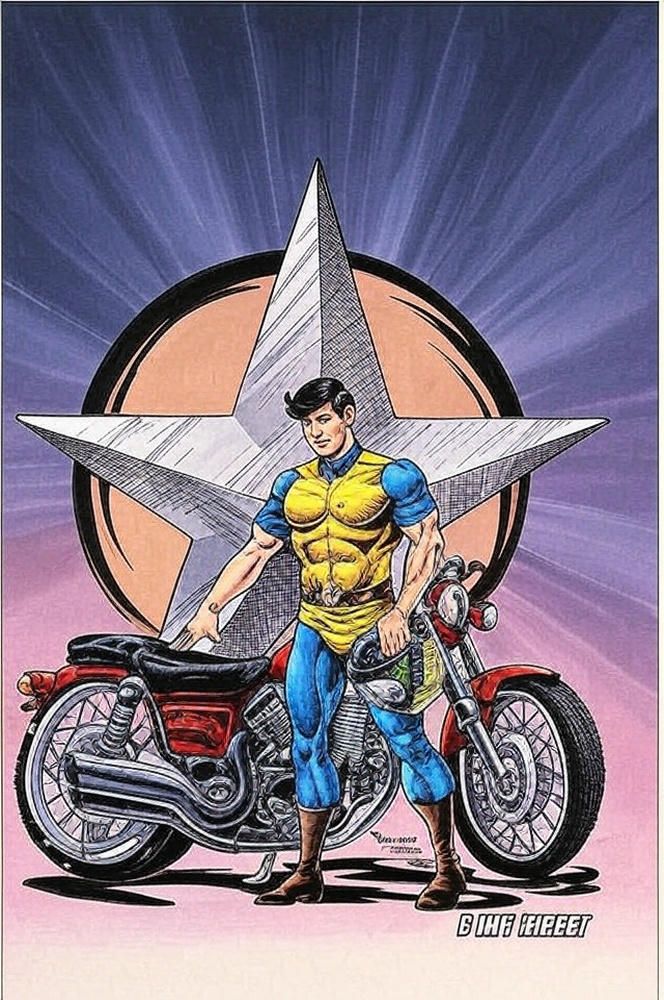Best Bollywood Movies of All Time
The best Bollywood movies of all time From timeless classics to modern gems immerse yourself in the rich tapestry of Indian cinema's finest
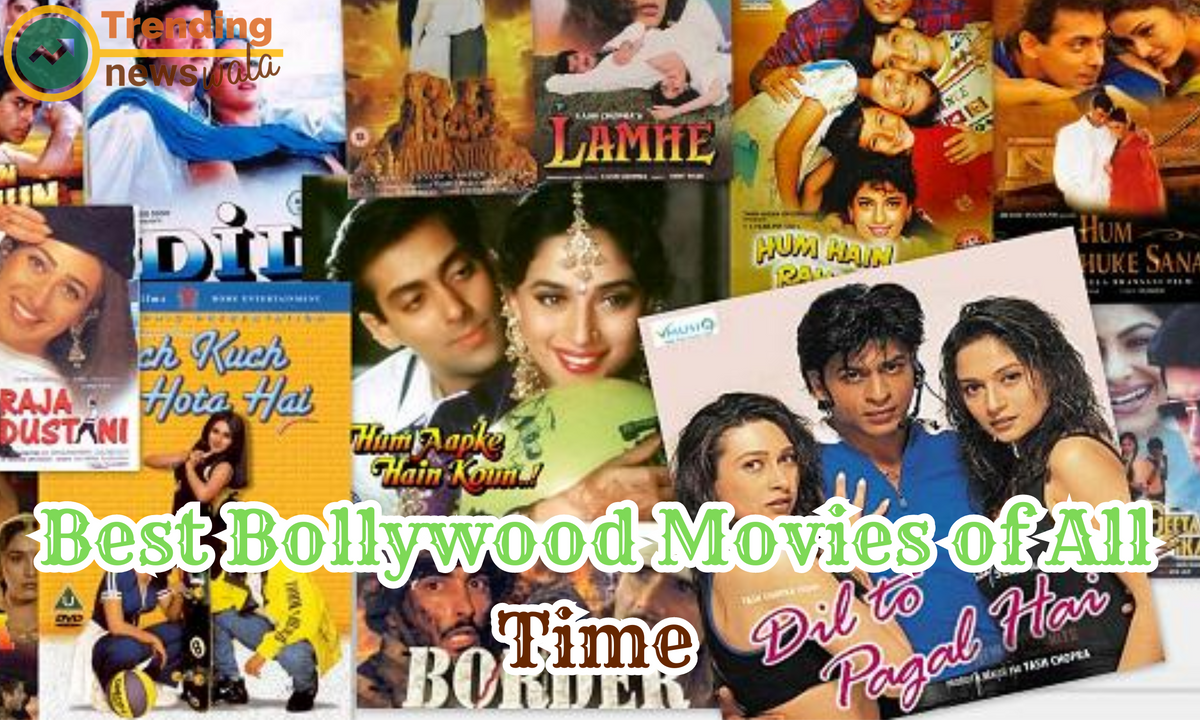
Embark on a cinematic journey through the realms of emotion, storytelling, and sheer brilliance with our curated list of the Top 20 Best Bollywood Movies of All Time. These timeless classics and contemporary masterpieces have left an indelible mark on Indian cinema, captivating audiences globally with their compelling narratives, iconic performances, and groundbreaking cinematography.
Explore the remaining ten films on our list, each a jewel in the crown of Bollywood, showcasing the rich tapestry of storytelling, cultural diversity, and artistic brilliance that defines the Indian film industry. From classics that stood the test of time to contemporary gems pushing cinematic boundaries, this collection represents the very essence of Bollywood's cinematic legacy. Immerse yourself in the magic of storytelling with the Top 20 Best Bollywood Movies of All Time.
List Of Top 20 Best Bollywood Movies of All Time
1. Bhaag Milkha Bhaag
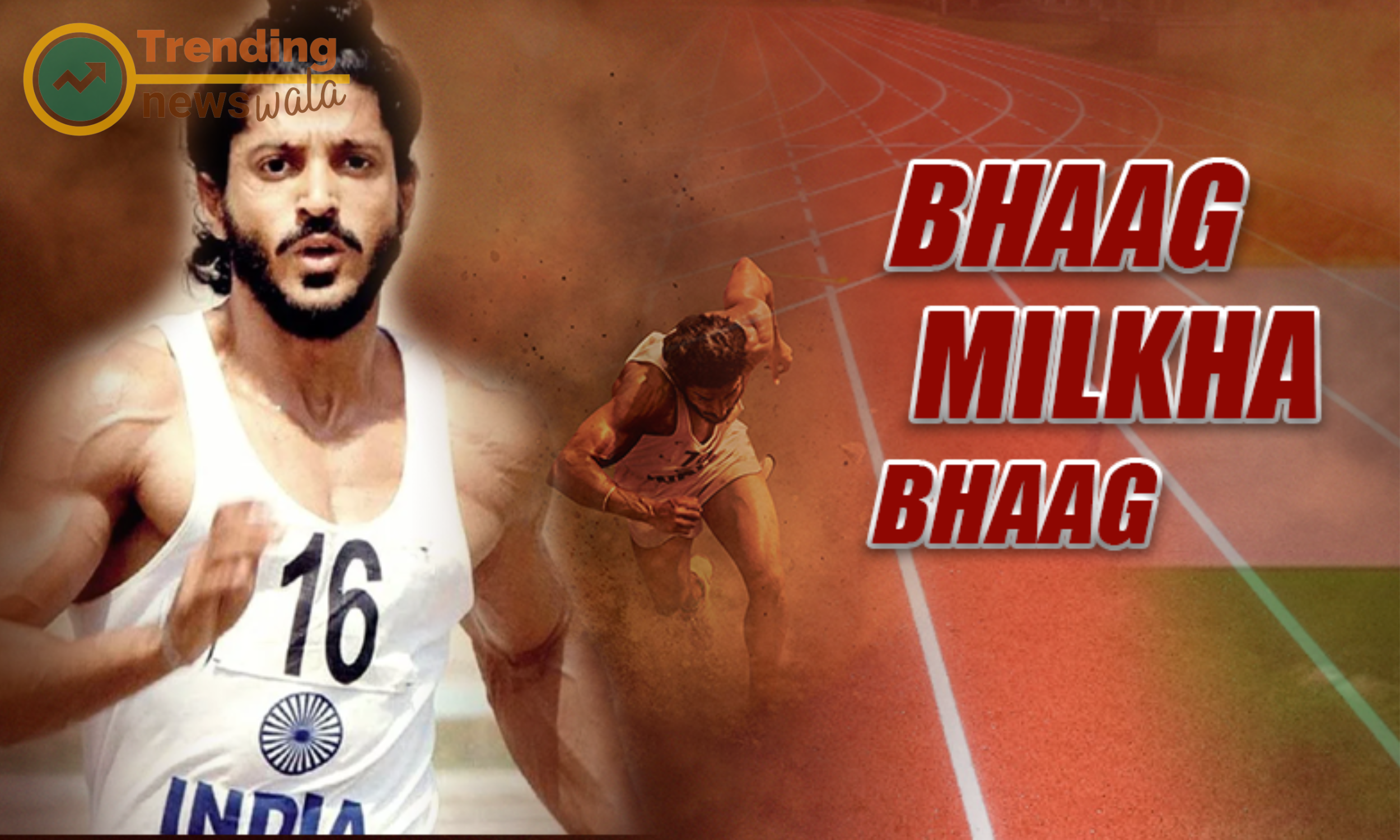
Bhaag Milkha Bhaag" is a Bollywood biographical sports drama film that was released in 2013. Directed by Rakeysh Omprakash Mehra, the film tells the inspiring life story of Milkha Singh, an Indian athlete known as "The Flying Sikh." Farhan Akhtar plays the lead role of Milkha Singh, and the film received widespread acclaim for its powerful storytelling, brilliant performances, and impactful direction.
Plot: The film traces the life journey of Milkha Singh, from his childhood in undivided India to his rise as one of the country's most celebrated athletes. Born in 1935 in undivided India, Milkha witnesses the horrors of the partition of India in 1947, which has a profound impact on his life. The film explores Milkha's struggles, triumphs, and the indomitable spirit that propels him to become a world-class athlete.
Key Themes:
Resilience and Determination: "Bhaag Milkha Bhaag" focuses on Milkha Singh's unwavering determination and resilience in the face of adversity. From surviving the trauma of the partition to overcoming personal struggles, the film portrays Milkha as a symbol of perseverance.
Athletic Excellence: The film beautifully captures Milkha Singh's journey in track and field events, showcasing his dedication to his craft, rigorous training, and his pursuit of excellence. The portrayal of Milkha's athletic achievements is both inspiring and authentic.
Romance and Relationships: While the primary focus is on Milkha's athletic career, the film also delves into his personal life, including his relationships and the impact they had on him. The romantic subplot involving Sonam Kapoor's character adds depth to the narrative.
Post-Independence Challenges: "Bhaag Milkha Bhaag" provides a glimpse into the challenges faced by individuals in post-independence India and how Milkha Singh's story reflects broader societal struggles and aspirations.
Performance: Farhan Akhtar's portrayal of Milkha Singh is widely praised and is considered one of his career-best performances. He not only physically transformed for the role but also captured the essence of Milkha Singh's persona, including his mannerisms, determination, and emotional depth.
Music: The film's soundtrack, composed by Shankar-Ehsaan-Loy, includes memorable songs such as "Zinda," "Maston Ka Jhund," and "Bhaag Milkha Bhaag." The music complements the narrative, contributing to the emotional impact of the film.
Critical Acclaim and Awards:"Bhaag Milkha Bhaag" received critical acclaim for its storytelling, direction, and performances. The film won several awards, including the National Film Award for Best Popular Film Providing Wholesome Entertainment. Farhan Akhtar received accolades for his portrayal of Milkha Singh.
In summary, "Bhaag Milkha Bhaag" stands as a cinematic tribute to one of India's greatest athletes, offering a compelling narrative that goes beyond sports to explore themes of resilience, determination, and the human spirit. The film is a must-watch for those seeking a blend of inspirational storytelling and exceptional performances.
Bhaag Milkha Bhaag is one of the greatest biographies made in the Bollywood. The movie based on the life of Milkha Singh, the movie tells the story of a scintillating script of the story of Milkha Singh. The tale of Indian Athlete narrates a gripping story of the Olympian. The movie is directed by Rakesh Omprakash Mehra and was a huge hit commercial success.
2. Jaane Bhi Do Yaaro
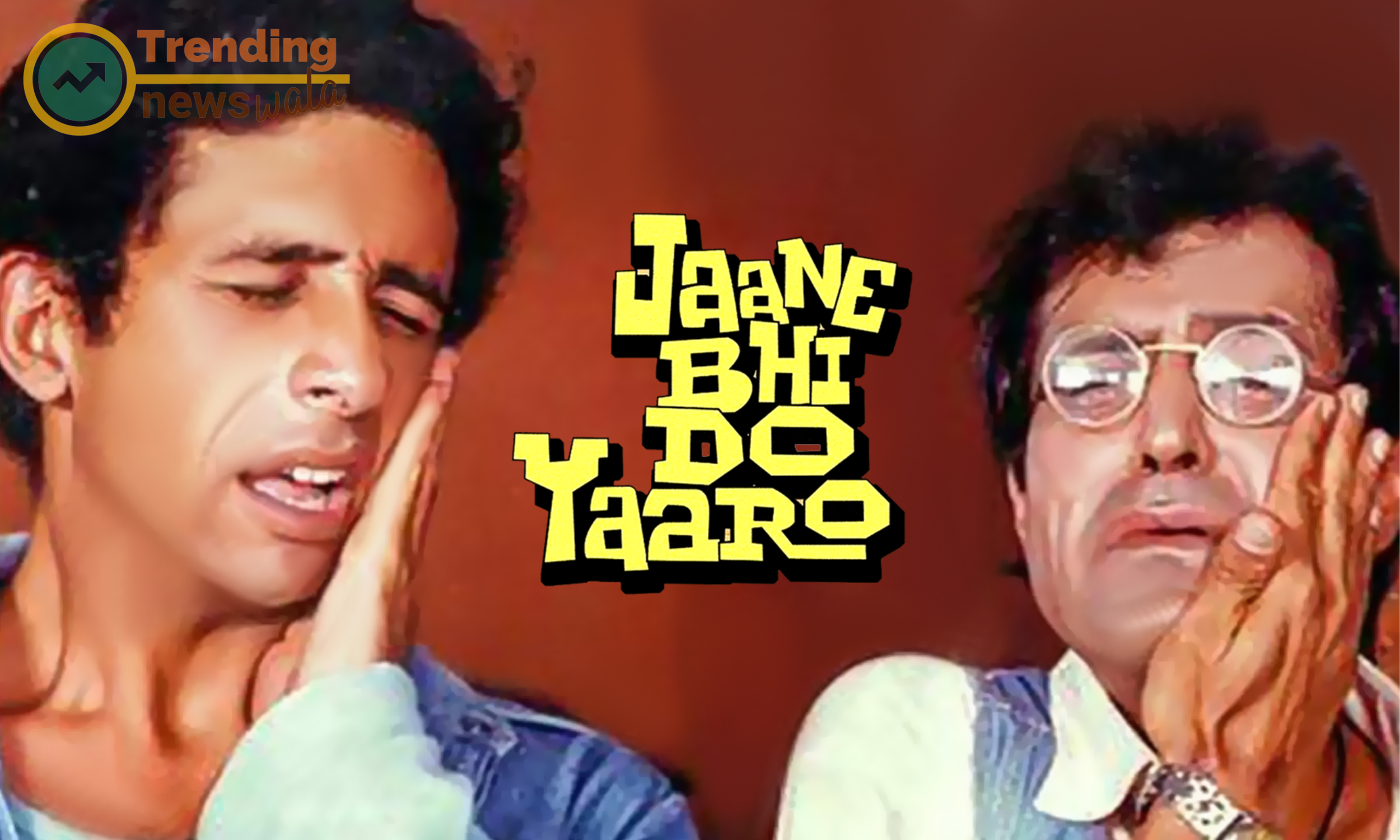
Jaane Bhi Do Yaaro" is a cult classic Indian dark comedy film released in 1983, directed by Kundan Shah The film is known for its satirical take on the socio-political issues of the time, combined with a sharp sense of humor. "Jaane Bhi Do Yaaro" has earned a special place in Indian cinema for its wit, satire, and memorable characters.
Plot: The story revolves around two professional photographers, Vinod Chopra (Naseeruddin Shah) and Sudhir Mishra (Ravi Baswani), who start their own photography studio. They accidentally capture evidence of a political scam involving corrupt builders, politicians, and bureaucrats. As they attempt to expose the truth, they find themselves embroiled in a series of absurd and hilarious situations.
Key Themes:
Corruption: At its core, the film satirizes the rampant corruption prevalent in Indian society, especially within the realms of politics and real estate. The characters unwittingly become witnesses to the corrupt dealings, highlighting the pervasive nature of dishonesty.
Bureaucracy and Media: The film humorously critiques the relationship between the media and bureaucracy. It showcases how news can be manipulated and sensationalized, drawing attention to the blurred lines between truth and sensationalism.
Irony and Absurdity: "Jaane Bhi Do Yaaro" is known for its use of irony and absurdity to highlight the absurd nature of real-world situations. The characters find themselves in increasingly bizarre and comical scenarios as they try to unravel the corruption they've stumbled upon.
Memorable Scenes:
Mahabharata Scene: The climax of the film, often referred to as the "Mahabharata Scene," is an iconic and chaotic reenactment of the Kurukshetra war, with characters dressed as various mythological figures. This scene is a satirical commentary on the moral ambiguity and chaos in contemporary society.
Construction Site Scene: The characters find themselves caught in a hilarious situation at a construction site, leading to a series of misunderstandings and comical events.
Cast and Performances: The film boasts a stellar ensemble cast, including Naseeruddin Shah, Ravi Baswani, Om Puri, Pankaj Kapur, Satish Shah, and others. The performances are widely praised for their comedic timing and authenticity, contributing significantly to the film's success.
Impact and Legacy: "Jaane Bhi Do Yaaro" wasn't an immediate commercial success upon release, but it gained cult status over the years for its unique blend of satire, humor, and social commentary. The film is celebrated for its witty dialogue, memorable scenes, and its ability to resonate with audiences across generations.
"Jaane Bhi Do Yaaro" remains a timeless classic that continues to be celebrated for its intelligent humor, social commentary, and the brilliant performances of its cast. It's a film that holds a mirror to the societal issues of its time while delivering its message through laughter and satire.
The Kundan Shah directed cult comedy was a huge hit movie and one of the most critically acclaimed movies. The 1983 release movie depicted the corruption on Politics, Bureaucracy, Media, and Business and how things get chaotic due to this. This is considered as one of the most sarcastic comedies or Black Comedy movies of Bollywood. The movie stars Naseeruddin Shah, Om Puri, Satish Shah among others.
3. Hum Aapke Hain Koun
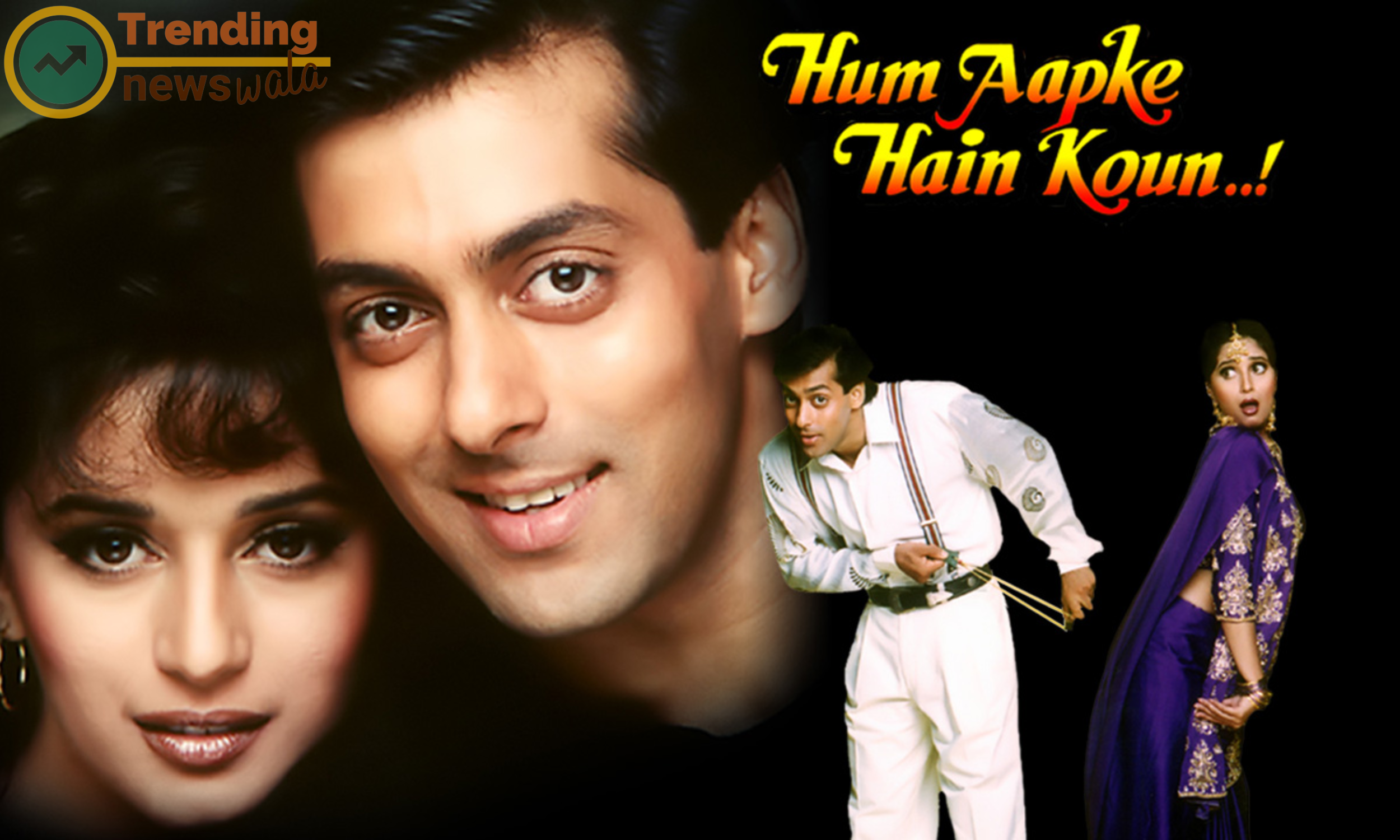
Hum Aapke Hain Koun" (HAHK) is a classic Indian musical romantic drama film directed by Sooraj R. Barjatya. Released in 1994, the film is widely regarded as one of the most successful and iconic Bollywood movies of all time. Starring Salman Khan and Madhuri Dixit in lead roles, HAHK is known for its family-centric storyline, memorable songs, and wholesome entertainment.
Plot: The film revolves around the love story between Prem (Salman Khan) and Nisha (Madhuri Dixit). Prem's elder brother, Rajesh (Mohnish Bahl), is initially set to marry Nisha. However, tragedy strikes when Rajesh dies in a fatal accident. In a turn of events, Prem's parents decide that he should marry Nisha to fulfill his brother's wish. The film unfolds as Prem and Nisha navigate their evolving relationship amidst a large joint family.
Key Themes:
Family Values: At its core, "Hum Aapke Hain Koun" celebrates traditional Indian family values. The film places a strong emphasis on the importance of family bonds, relationships, and the collective happiness of the family unit.
Love and Sacrifice: The film explores the themes of love and sacrifice. Prem and Nisha's characters are portrayed as individuals willing to make personal sacrifices for the happiness and well-being of their family members.
Celebration of Traditions: From elaborate wedding sequences to festive celebrations, the film showcases the richness of Indian traditions and cultural practices. Rituals and ceremonies play a significant role in the narrative.
Memorable Elements:
Songs and Music: "Hum Aapke Hain Koun" is known for its memorable soundtrack composed by Raamlaxman. Songs like "Didi Tera Devar Deewana," "Pehla Pehla Pyar Hai," and "Joote Do Paise Lo" became chartbusters and are still popular today.
Salman Khan and Madhuri Dixit's Chemistry: The on-screen chemistry between Salman Khan and Madhuri Dixit is often cited as one of the highlights of the film. Their performances and camaraderie contributed significantly to the film's success.
Cinematography and Sets: The film is visually appealing with vibrant colors, grand sets, and opulent costumes. The elaborate sets used for the wedding sequences added to the film's overall visual charm.
Box Office Success:"Hum Aapke Hain Koun" was a massive commercial success and became the highest-grossing Bollywood film at the time of its release. Its success is attributed to its family-friendly content, strong performances, and the feel-good factor that resonated with a wide audience.
Impact and Legacy: The film's success contributed to the popularity of family-centric dramas in Bollywood. "Hum Aapke Hain Koun" remains a beloved classic, and its influence can be seen in subsequent films that attempt to capture the essence of Indian family values and celebrations.
In conclusion, "Hum Aapke Hain Koun" is not just a film but a cultural phenomenon that has left an indelible mark on Indian cinema. It continues to be cherished for its timeless appeal, heartwarming narrative, and the joy it brings to audiences, making it a quintessential part of Bollywood's cinematic legacy.
Bollywood gave the family film called “Hum Aapke Hain Koun…!” in 1994, which was acclaimed all over the world for taking us back to the roots of Indian values. A product of the prestigious Rajshri banner, it starred Salman Khan and Madhuri Dixit in lead roles.
4. Golmaal

Golmaal" is a classic Bollywood comedy film directed by Hrishikesh Mukherjee, released in 1979. The film is known for its situational humor, witty dialogues, and a strong ensemble cast. While there are multiple films titled "Golmaal" in the Bollywood industry, the one directed by Hrishikesh Mukherjee is considered a landmark in Indian comedy cinema.
Plot: The story revolves around Ramprasad Sharma (played by Amol Palekar), a young man looking for a job. Due to a series of misunderstandings, he ends up in a bungalow owned by the strict and principled Bhavani Shankar (played by Utpal Dutt). Bhavani Shankar, who despises lies and unprofessionalism, employs Ramprasad without realizing that he is a part of a group of friends who enjoy pranks and comedic situations.
As Ramprasad tries to maintain his job while hiding his mischievous friends, chaos ensues, leading to a hilarious sequence of events that involve mistaken identities, misunderstandings, and laugh-out-loud moments.
Key Themes:
Comedy of Errors: "Golmaal" is a classic example of a comedy of errors, where the plot is driven by misunderstandings, miscommunications, and mistaken identities. The humor arises from the characters trying to cover up their actions and the ensuing confusion.
Satire on Professionalism: The film satirizes the concept of extreme professionalism and the rigid adherence to rules. Bhavani Shankar's character represents the stereotypical disciplinarian boss, and the film humorously explores the consequences of taking professionalism to the extreme.
Memorable Characters and Performances:
Amol Palekar as Ramprasad Sharma: Amol Palekar's portrayal of the lead character, Ramprasad, is a perfect blend of innocence and mischief. His comic timing and expressions contribute significantly to the film's humor.
Utpal Dutt as Bhavani Shankar: Utpal Dutt's performance as the strict and authoritative Bhavani Shankar is iconic. His portrayal adds a layer of seriousness to the film's comedic situations.
Dina Pathak as Urmila Sharma: Dina Pathak plays the role of Ramprasad's caring but strict mother, adding another layer of humor to the film.
Music: The film features the melodious and memorable song "Aanewala Pal Janewala Hai," sung by Kishore Kumar. The song beautifully captures the essence of the film and its lighthearted moments.
Impact and Legacy:"Golmaal" was a major success at the box office and is considered a classic in Indian cinema. Its success paved the way for more comedy films in Bollywood, and it remains a reference point for filmmakers exploring the genre.
Sequels: The success of "Golmaal" led to the creation of several sequels, each featuring a new storyline but maintaining the core theme of comedy and misunderstandings. The most recent installment in the franchise is "Golmaal Again" (2017).
In summary, "Golmaal" is a timeless classic that has entertained generations of audiences with its simple yet effective comedy. Its legacy lives on in the hearts of Bollywood fans, and the film continues to be celebrated for its humor, performances, and contribution to the genre of Indian comedy cinema.
The Hrishikesh Mukherjee directed cult comedy Golmaal set the benchmark in the Bollywood. The hilarious plot, screenplay and outstanding performances from Amol Palekar, Utpal Dutt, and Bindiya Goswami made the 1979 blockbuster a huge success. The movie is still considered as one of the greatest comedy movies of all time in Bollywood.
5. Deewar

Deewar," directed by Yash Chopra, is a landmark Bollywood film released in 1975 that stands as a defining work in Indian cinema. The film is a powerful drama that explores themes of morality, family, and the impact of societal forces on individual lives. Starring Amitabh Bachchan, Shashi Kapoor, and Nirupa Roy in pivotal roles, "Deewar" is remembered for its iconic dialogues, compelling storyline, and the stellar performances of its cast.
Plot:"Deewar" follows the lives of two brothers, Vijay and Ravi, played by Amitabh Bachchan and Shashi Kapoor, respectively. The narrative unfolds against the backdrop of post-independence India, with the brothers experiencing the harsh realities of life in the city of Mumbai. As they navigate the challenges of poverty and societal pressures, their paths diverge due to differing ideologies and choices.
Vijay turns to a life of crime, becoming a formidable underworld figure, while Ravi remains an upstanding police officer committed to justice. The film explores the moral dilemma faced by the brothers as their conflicting paths converge, leading to a powerful and emotionally charged climax.
Key Themes:
Conflict of Morality: "Deewar" delves into the moral and ethical dilemmas faced by its characters. The film poses questions about the choices individuals make in the face of adversity, exploring the blurred lines between right and wrong.
Socioeconomic Divide: The narrative vividly portrays the socioeconomic disparities in post-independence India, highlighting the struggles of the common man and the impact of these disparities on familial relationships.
Iconic Dialogues:"Deewar" is renowned for its unforgettable dialogues, penned by Salim-Javed. The line "Mere paas maa hai" ("I have Mother with me") uttered by Amitabh Bachchan's character during a pivotal confrontation scene has become one of the most iconic and quoted dialogues in Indian cinema.
Performance: Amitabh Bachchan's portrayal of Vijay in "Deewar" is considered one of the finest performances in his illustrious career. His intense and nuanced portrayal of the conflicted and determined character contributed significantly to the film's success.
Music: The music of "Deewar," composed by R.D. Burman, includes timeless songs such as "Koi Jab Tumhara Hriday Tod De" and "Keh Doon Tumhe," which continue to be cherished by audiences.
Impact and Legacy:"Deewar" is widely regarded as a classic that left an indelible mark on Indian cinema. Its themes, performances, and dialogues have influenced subsequent generations of filmmakers, making it a reference point for films exploring societal issues and family dynamics.
In conclusion, "Deewar" remains a cinematic gem that resonates with audiences even decades after its release. Its exploration of moral complexities, coupled with impactful performances and unforgettable dialogues, has solidified its place in the pantheon of timeless Indian films.
Next on the list of top 10 Bollywood movies of all times is the family saga called “Deewar”, a 1975 release, which had Amitabh Bachchan pitted against Shashi Kapoor, as brothers representing good versus bad.
6. Guide

Guide" is a classic Bollywood film directed by Vijay Anand, released in 1965. Based on the novel of the same name by R.K. Narayan, the film is known for its nuanced storytelling, strong performances, and memorable music. "Guide" is considered a landmark in Indian cinema and has achieved cult status over the years.
Plot: The story revolves around Raju Guide, played by Dev Anand, a charismatic and carefree tour guide in the fictional town of Malgudi. Rosie Marco (Waheeda Rehman), an unhappily married woman seeking solace, crosses paths with Raju. As their lives become intertwined, Raju transforms from a charismatic guide to a spiritual leader, facing challenges and moral dilemmas along the way.
The narrative explores themes of love, sacrifice, societal norms, and the quest for spiritual fulfillment. The film is renowned for its complex characters and the unconventional narrative structure that defied the typical Bollywood conventions of the time.
Key Themes:
Spirituality and Self-Discovery: "Guide" delves into the spiritual journey of its protagonist, Raju, as he evolves from a materialistic and carefree guide to a seeker of spiritual enlightenment. The film explores the theme of self-discovery and the quest for a higher purpose.
Complex Characters: The characters in "Guide" are multi-dimensional and defy traditional stereotypes. Rosie, in particular, stands out as a complex and layered character who challenges societal expectations.
Memorable Elements:
Performances: Dev Anand delivers a memorable performance as Raju Guide, capturing the character's charm, conflicts, and transformation. Waheeda Rehman is equally commendable in her portrayal of Rosie, bringing depth and emotion to the character.
Music: The music of "Guide," composed by S.D. Burman with lyrics by Shailendra, is considered one of the greatest soundtracks in Indian cinema. Songs like "Aaj Phir Jeene Ki Tamanna Hai" and "Tere Mere Sapne" continue to be cherished for their timeless appeal.
Controversies and Awards:"Guide" faced some controversies due to its unconventional storyline and themes, especially the portrayal of a married woman seeking love outside her marriage. However, the film received critical acclaim for its bold narrative and received several awards, including the National Film Award for Best Feature Film in Hindi.
Impact and Legacy: "Guide" is celebrated for its artistic and narrative achievements, and its impact on Indian cinema has endured over the years. It has influenced subsequent filmmakers and is often cited as one of the finest examples of storytelling in Bollywood.
Adaptations: The novel "Guide" by R.K. Narayan was also adapted into a successful English-language film titled "Guide" in 1965, directed by Tad Danielewski and starring Dev Anand and Waheeda Rehman.
In conclusion, "Guide" remains a cinematic masterpiece that continues to be admired for its exploration of complex themes, memorable performances, and outstanding music. Its enduring legacy as a groundbreaking film in Indian cinema cements its place in the annals of cinematic history.
The legendary movie “Guide”, which was released in 1965, is considered as one of the greatest Bollywood movies of all times. Based on a novel of the same name, the movie starred legendary actors Dev Anand and Waheeda Rehman in lead roles.
7. Queen
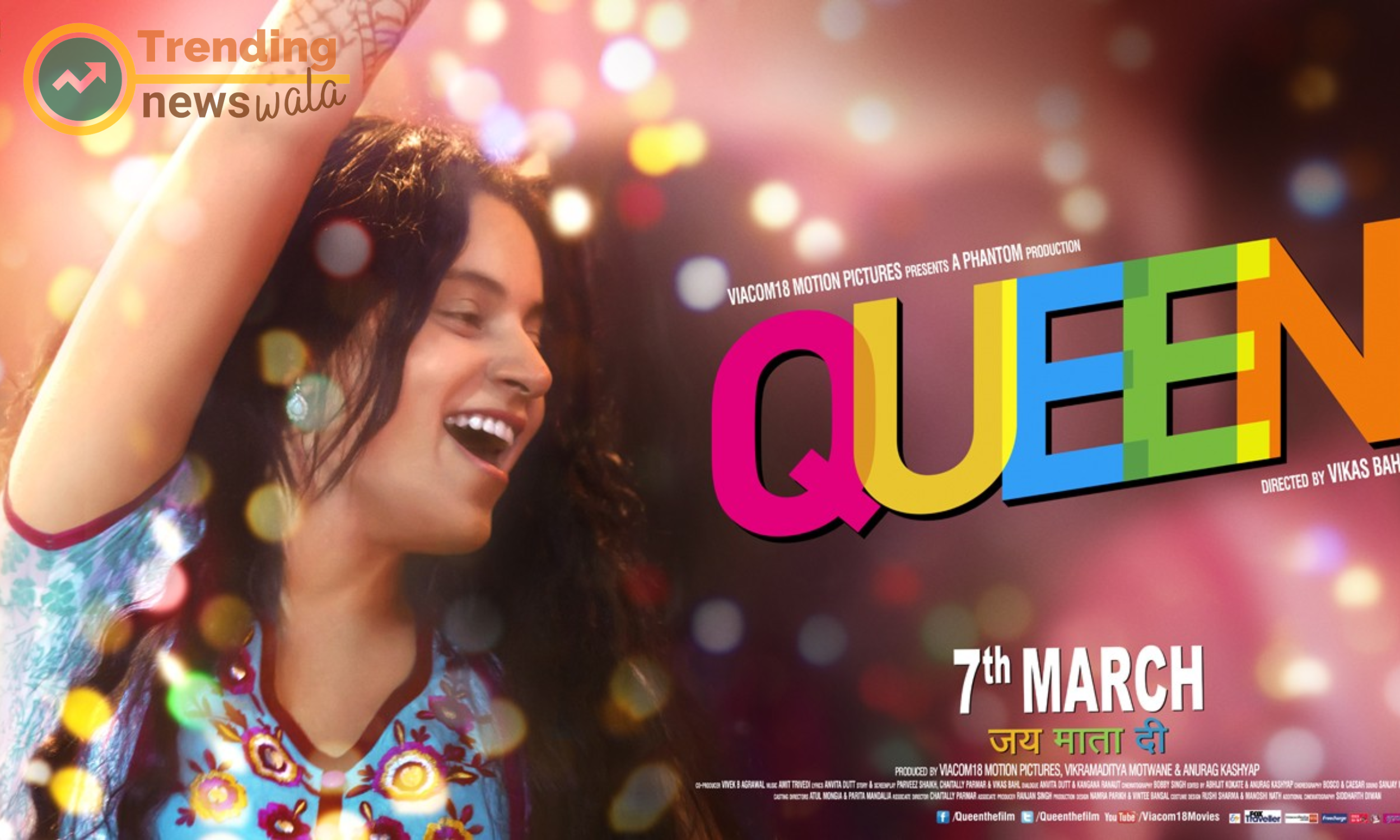
Queen" is a critically acclaimed Bollywood film directed by Vikas Bahl, released in 2013. Starring Kangana Ranaut in the lead role, the film received widespread acclaim for its refreshing storyline, strong performances, and a genuine portrayal of self-discovery. "Queen" stands out as a coming-of-age film that challenges traditional norms and celebrates the journey of self-realization.
Plot: The story revolves around Rani Mehra (Kangana Ranaut), a young woman from Delhi whose life takes an unexpected turn when her fiancé calls off their wedding just days before the ceremony. Instead of canceling her honeymoon trip to Europe, Rani decides to embark on the journey alone, leading to a series of adventures that transform her perspective on life and love.
As Rani travels through different cities and interacts with diverse people, she undergoes a process of self-discovery, gaining confidence, independence, and a renewed sense of identity.
Key Themes:
Self-Discovery: The central theme of "Queen" is Rani's journey of self-discovery. Through her solo travels, she learns to embrace her individuality, break free from societal expectations, and redefine her identity independent of her relationships.
Empowerment and Independence: The film champions the idea of women's empowerment and independence. Rani's journey becomes a symbol of liberation as she navigates the challenges of a new environment, meets diverse people, and learns to make decisions on her own.
Memorable Elements:
Kangana Ranaut's Performance: Kangana Ranaut's portrayal of Rani earned her widespread acclaim and several awards, including the National Film Award for Best Actress. Her nuanced performance captured the vulnerability, strength, and growth of the character.
Realistic Storytelling: "Queen" is praised for its realistic and relatable storytelling. The film avoids traditional Bollywood clichés, presenting a narrative that resonated with a wide audience.
Cinematography and Locations: The film features stunning cinematography that captures the beauty of the European cities Rani visits during her journey. The picturesque locations become an integral part of the narrative, adding visual richness to the storytelling.
Impact and Legacy:"Queen" had a significant impact on both critics and audiences. It received numerous awards and nominations and became a game-changer for Bollywood in terms of its narrative approach and focus on female-centric stories. Kangana Ranaut's performance and the film's success contributed to discussions around women's roles in Indian cinema.
Critical Acclaim:"Queen" received widespread critical acclaim for its refreshing storyline, exceptional performances, and its ability to challenge societal norms. The film's success marked a turning point in Bollywood, opening doors for more narratives that focus on women's stories and empowerment.
In conclusion, "Queen" is celebrated as a breakthrough film in Indian cinema, offering a poignant and empowering narrative that resonated with audiences. It remains a significant contribution to the evolving landscape of Bollywood storytelling, showcasing the strength and resilience of women in the face of personal challenges.
The 2014 comedy drama embarked a new beginning in the Bollywood movies. The movie stars Kangana Ranaut and she established herself as the Queen of Bollywood. The story revolves around a lady who was dumped in Europe during her honeymoon and then she finds her new gained confidence. The movie directed by Vicky Behl gave Bollywood a different genre of movies.
8. Do Bigha Zamin

Do Bigha Zamin" is a classic Indian film directed by Bimal Roy and released in 1953. The film is highly regarded for its realistic portrayal of rural life, social issues, and the impact of industrialization on agrarian societies. "Do Bigha Zamin" is considered a landmark in Indian cinema and is celebrated for its powerful storytelling, poignant performances, and social commentary.
Plot: The story revolves around Shambu Mahato (played by Balraj Sahni), a poor farmer from a village facing economic hardships due to industrialization. Shambu is unable to pay off the debts on his two acres of land, and the moneylender is adamant about taking possession of the land. To secure the money needed, Shambu is forced to migrate to Calcutta (now Kolkata) to work as a rickshaw puller.
The film depicts Shambu's struggles in the city, his encounters with exploitation, and the challenges he faces to earn the meager amount required to save his land. The narrative explores themes of poverty, exploitation, and the impact of urbanization on traditional rural life.
Key Themes:
Urbanization and Rural Displacement: "Do Bigha Zamin" addresses the theme of rural displacement caused by industrialization and the consequent migration of agrarian communities to urban areas in search of livelihoods.
Economic Injustice: The film highlights economic injustice and the exploitative practices faced by poor farmers at the hands of moneylenders and industrial forces. Shambu's plight becomes a representation of the broader struggles faced by the marginalized sections of society.
Realism and Social Commentary:
Realistic Portrayal: "Do Bigha Zamin" is celebrated for its realistic portrayal of characters and situations. The film's director, Bimal Roy, was known for his commitment to socially relevant and authentic storytelling.
Social Commentary: The film serves as a powerful social commentary on the impact of economic disparity, industrialization, and the changing socio-economic landscape on traditional agrarian communities.
Impact and Recognition: "Do Bigha Zamin" received critical acclaim both nationally and internationally. It won the International Prize at the Cannes Film Festival in 1954, bringing global recognition to Indian cinema. The film is often cited as a classic example of the Parallel Cinema movement in India, which focused on realistic and socially relevant narratives.
Legacy: The impact of "Do Bigha Zamin" is enduring. It has influenced subsequent generations of filmmakers and remains an essential part of Indian cinematic history. The film's legacy lies in its ability to tell a poignant and universally relevant story that transcends time and cultural boundaries.
Awards and Honors: Apart from its recognition at the Cannes Film Festival, "Do Bigha Zamin" received several national awards, including the Filmfare Award for Best Story and the National Film Award for Best Feature Film.
Do Bigha Zamin" is a cinematic masterpiece that continues to be celebrated for its powerful storytelling, social relevance, and realistic portrayal of human struggles. It holds a special place in the history of Indian cinema as a film that not only entertained but also raised important questions about social justice and the human condition.
If there was a trend setter in Bollywood, then this was the first movie that is a trend setter. Director Bimal Roy made a movie built on the socialist theme and is considered as the first revolutionary movie. The 1953 movie starring Balraj Sahni and Nirupa Roy showed the plight and agony of a farmer for a piece of land.
9. Dil Chahta Hai
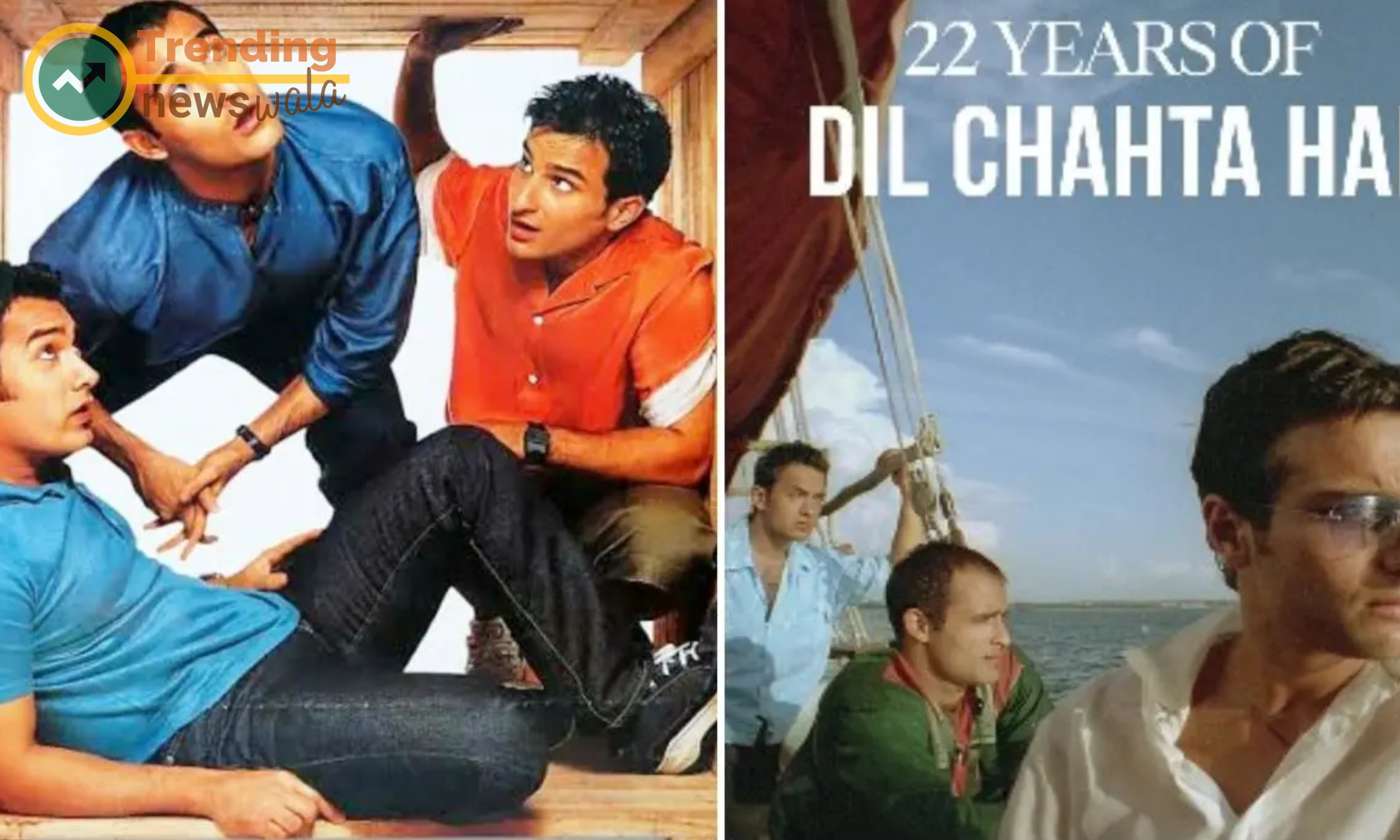
Dil Chahta Hai" is a Bollywood coming-of-age film directed by Farhan Akhtar, released in 2001. The film is known for its fresh and contemporary take on friendships, love, and the journey of self-discovery among urban youth. "Dil Chahta Hai" marked the directorial debut of Farhan Akhtar and went on to become a significant milestone in Indian cinema.
Plot: The story revolves around three inseparable friends - Aakash (Aamir Khan), Sameer (Saif Ali Khan), and Siddharth or Sid (Akshaye Khanna) - who are enjoying their carefree, post-college days. The narrative unfolds through a series of flashbacks and present-day events, exploring their individual journeys in love and life.
The film primarily focuses on the dynamics of their friendship, the challenges they face, and how their paths diverge as they navigate the complexities of relationships and personal growth. Aakash is portrayed as the practical and pragmatic friend, Sameer as the hopeless romantic, and Sid as the serious and introspective artist.
Key Themes:
Friendship: The central theme of "Dil Chahta Hai" is the bond of friendship. The film explores the highs and lows of the three friends' relationships, capturing the essence of camaraderie, loyalty, and the inevitable changes that occur as they enter different phases of life.
Love and Relationships: The film delves into the romantic relationships of the three friends, each experiencing love in their unique ways. The portrayal of romantic entanglements adds depth to the narrative, showcasing the complexities of modern relationships.
Memorable Elements:
Contemporary Storytelling: "Dil Chahta Hai" was notable for its contemporary and urban storytelling, breaking away from traditional Bollywood conventions. The film resonated with a younger audience due to its relatable characters and realistic portrayal of urban life.
Music: The soundtrack of "Dil Chahta Hai," composed by Shankar-Ehsaan-Loy with lyrics by Javed Akhtar, became immensely popular. Songs like "Koi Kahe Kehta Rahe," "Jaane Kyon," and the title track are considered timeless classics.
Aesthetic Cinematography: Ravi K. Chandran's cinematography captured the scenic beauty of Goa and Sydney, contributing to the film's visual appeal. The use of vibrant colors and picturesque locations added to the overall aesthetic.
Impact and Legacy: "Dil Chahta Hai" had a significant impact on Indian cinema, particularly for its portrayal of contemporary urban youth. The film's success contributed to the emergence of more realistic and youth-centric narratives in Bollywood. It is often cited as a cult film that captured the spirit of a generation.
Critical Acclaim: The film received critical acclaim for its screenplay, performances, and the portrayal of friendships and relationships. It won several awards, including the National Film Award for Best Feature Film in Hindi.
Cultural Influence:"Dil Chahta Hai" has had a lasting cultural influence. The film's dialogues, characters, and themes continue to be referenced and celebrated in popular culture. The term "Dil Chahta Hai" itself has become synonymous with the pursuit of one's desires and aspirations.
In conclusion, "Dil Chahta Hai" is celebrated as a groundbreaking film that brought a fresh perspective to Indian cinema. Its exploration of friendships, love, and individual journeys struck a chord with audiences and filmmakers alike, leaving an indelible mark on the landscape of Bollywood storytelling.
This is the trend changer of Bollywood came lately in 2001. The movie is set on the modern generation depicted the story of three friends and how their life changed. The movie perfectly describes the modern day friendship and relationship. The movie stars Aamir Khan, Saif Ali Khan, Akshay Khanna, Preity Zinta, Sonali Kulkarni, Dimple Kapadia among others. It was directed by Farhan Akhtar.
9. Dilwale Dulhaniya Le Jayenge

Dilwale Dulhania Le Jayenge" (DDLJ) is an iconic Bollywood film directed by Aditya Chopra, released in 1995. The film is a timeless romantic drama that has achieved cult status and is considered one of the greatest love stories in Indian cinema. Starring Shah Rukh Khan and Kajol in lead roles, DDLJ is known for its memorable characters, melodious music, and its portrayal of traditional Indian values.
Plot: The story revolves around Raj Malhotra (Shah Rukh Khan) and Simran Singh (Kajol), two individuals from different backgrounds who meet and fall in love while traveling through Europe. Simran, who is already promised in an arranged marriage, is hesitant to reveal her feelings to her strict father, Chaudhry Baldev Singh (Amrish Puri).
Upon returning to India, Raj follows Simran to her hometown to win the approval of her father. The film beautifully portrays the journey of love, family dynamics, and the clash between traditional and modern values.
Key Themes:
Love and Tradition: The central theme of DDLJ is the power of love against traditional societal norms. The film explores the conflict between personal feelings and familial expectations, emphasizing the importance of following one's heart.
Cultural Identity: DDLJ celebrates Indian culture, family values, and traditions. The film showcases the importance of preserving cultural identity while embracing modernity.
Memorable Elements:
Characters and Performances: Shah Rukh Khan and Kajol delivered iconic performances as Raj and Simran, respectively. Their on-screen chemistry became legendary, and their characters are etched in the hearts of audiences.
Music: The soundtrack of DDLJ, composed by Jatin-Lalit with lyrics by Anand Bakshi, includes timeless songs like "Tujhe Dekha Toh Yeh Jana Sanam," "Mere Haath Mein," and the ever-popular title track. The music played a crucial role in the film's success and is still beloved by fans.
Locations: The film was shot in picturesque locations in Europe, adding visual grandeur to the narrative. The scenes in the mustard fields, the iconic Simran's village, and the Swiss Alps became iconic visuals.
Impact and Legacy:
Box Office Success: DDLJ became a massive commercial success and holds the record for the longest-running film in the history of Indian cinema. It ran for over 25 years at the Maratha Mandir cinema in Mumbai.
Cultural Phenomenon: The film became a cultural phenomenon, influencing fashion, dialogues, and relationship expectations. The train scene, where Raj extends his hand to Simran, became an iconic moment in Bollywood history.
Global Appeal: DDLJ was not only a success in India but also gained a substantial international fan base. It played a pivotal role in popularizing Bollywood worldwide.
Critical Acclaim: The film received critical acclaim for its storytelling, performances, and its ability to connect with audiences emotionally. It won several awards, including the National Film Award for Best Popular Film Providing Wholesome Entertainment.
Legacy and Celebrations: DDLJ's impact has endured over the years, and it is often referenced and celebrated in various forms of popular culture. The film's iconic dialogues, scenes, and characters continue to be celebrated on its anniversaries.
In conclusion, "Dilwale Dulhania Le Jayenge" is more than just a film; it is a cultural phenomenon that has left an indelible mark on Indian cinema. Its timeless appeal, coupled with the enduring popularity of Raj and Simran's love story, makes it a quintessential part of Bollywood's cinematic legacy.
Next on the list of top 10 Bollywood movies of all times is the blockbuster from Yash Raj camp, “Dilwale Dulhaniya Le Jayenge”, which was released in 1995. It was the film which established Shahrukh Khan as the current super star and also took Kajol to the accolades of top actresses in the industry.
10. A Wednesday!

A Wednesday" is a critically acclaimed Indian thriller film directed by Neeraj Pandey, released in 2008. The film is known for its gripping narrative, intense performances, and thought-provoking themes. Starring Naseeruddin Shah and Anupam Kher in lead roles, "A Wednesday" is a taut and suspenseful thriller that explores issues of terrorism, justice, and the impact of common citizens on societal change.
Plot: The story unfolds on a Wednesday when an unnamed common man (played by Naseeruddin Shah) calls the Mumbai Police Commissioner Prakash Rathod (played by Anupam Kher) and informs him about the placement of five bombs in the city. The common man demands the release of four militants in exchange for information on the bombs. As the events unfold, the film keeps the audience on the edge of their seats with twists and turns.
The narrative is presented as a flashback, with the Commissioner recalling the events of that fateful Wednesday to a police officer on his last day before retirement.
Key Themes:
Counter-Terrorism: "A Wednesday" explores the theme of counter-terrorism and the moral dilemmas faced by law enforcement officials when dealing with terrorism. It raises questions about the effectiveness of conventional methods and the desperation that can lead to unconventional actions.
Citizen's Power: The film emphasizes the power of an ordinary citizen to make a significant impact on society. The common man in the film takes matters into his own hands to address what he perceives as a lack of justice in dealing with terrorism.
Memorable Elements:
Performances: Naseeruddin Shah's portrayal of the common man is widely praised for its depth and intensity. Anupam Kher's performance as the Police Commissioner adds to the film's overall impact.
Tension and Suspense: "A Wednesday" is known for its tightly woven plot that keeps the audience engaged throughout. The suspense and tension are maintained until the final moments of the film.
Realism: The film is lauded for its realistic portrayal of terrorism and the responses of both law enforcement and ordinary citizens. The narrative does not rely on typical Bollywood tropes but presents a grounded and plausible scenario.
Impact and Recognition:
Critical Acclaim: "A Wednesday" received widespread critical acclaim for its writing, direction, and performances. It was appreciated for its realistic depiction of terrorism and the ethical questions it raises.
Awards: The film won several awards, including the National Film Award for Best Dialogue and the Filmfare Award for Best Story.
Cultural Impact: "A Wednesday" left a lasting impact on the audience and initiated discussions on issues related to terrorism, justice, and the power of common citizens. The film's dialogues and narrative style have become memorable in popular culture.
Legacy:
Influence on Thriller Genre: "A Wednesday" is often cited as a benchmark in the thriller genre in Indian cinema. Its success paved the way for more realistic and intense thrillers in Bollywood.
Remakes: The film was remade in multiple languages, including Tamil and Telugu, further extending its reach and impact.
In conclusion, "A Wednesday" is a gripping and socially relevant thriller that challenges the conventional narrative tropes and explores the power dynamics between the state, terrorists, and the common citizen. Its success lies in its ability to engage the audience intellectually while maintaining a high level of suspense and tension.
The 2008 Indian thriller is one of the best movies in the last decade. The movie sets on the sensitive issue of terrorism. The movie sets on a particular Wednesday and conversation between an about to retire Police Commissioner and a common man. The movie stars Naseeruddin Shah and Anupam Kher along with Jimmy Shergill.
11. Kahaani
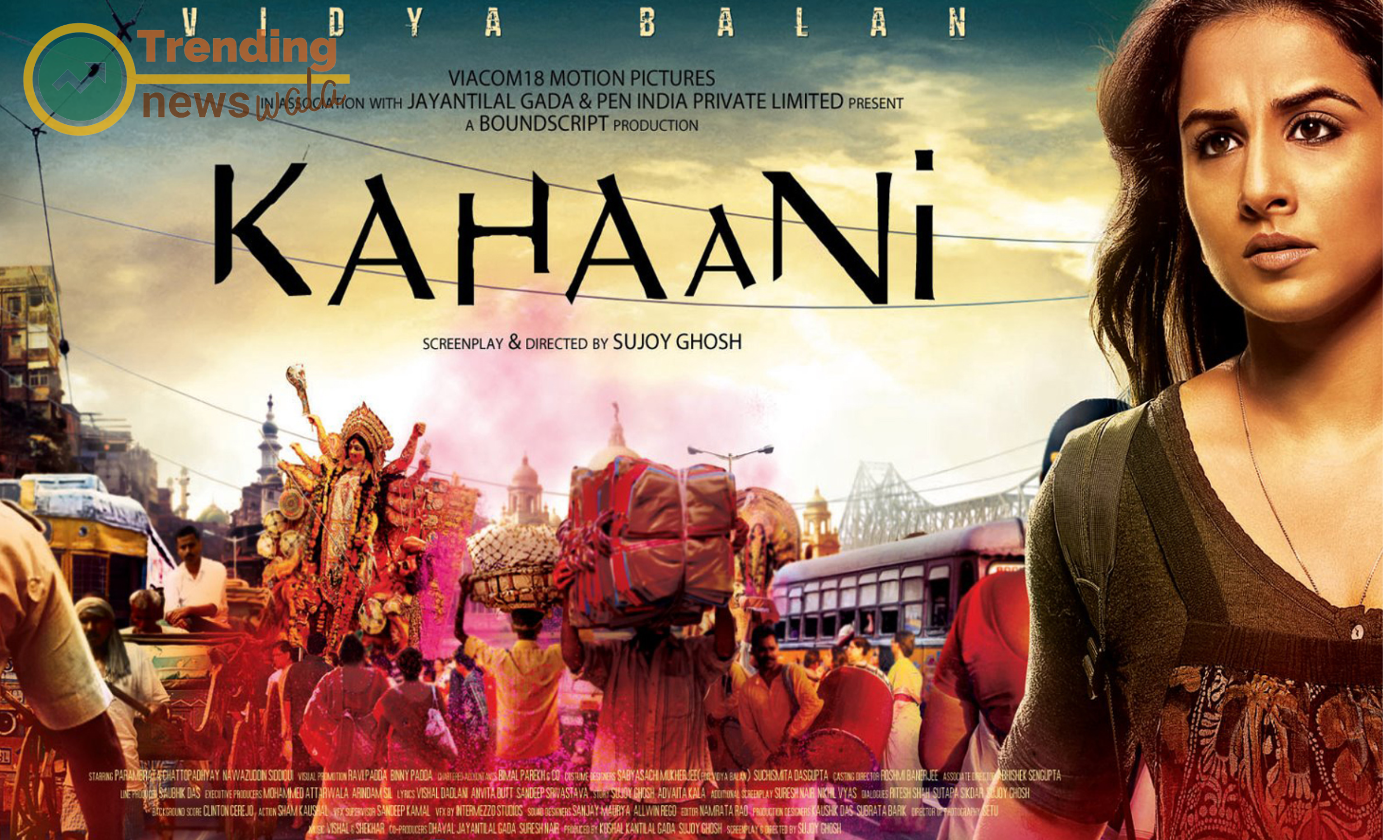
Kahaani" is a critically acclaimed Bollywood thriller film directed by Sujoy Ghosh, released in 2012. Starring Vidya Balan in the lead role, the film is known for its gripping narrative, strong performances, and the atmospheric depiction of Kolkata. "Kahaani" stands out as a suspenseful thriller that kept audiences on the edge of their seats and is widely regarded as a milestone in contemporary Indian cinema.
Plot: The story follows Vidya Bagchi (Vidya Balan), a pregnant woman who arrives in Kolkata from London in search of her missing husband, Arnab Bagchi. As Vidya delves deeper into the mystery, she encounters obstacles, deception, and a police officer named Rana (played by Parambrata Chatterjee) who assists her in the investigation.
As the narrative unfolds, Vidya discovers layers of intrigue surrounding her husband's disappearance and finds herself in the midst of a complex web of conspiracies and hidden agendas. The film keeps the audience guessing about the true identity of Vidya and the motives behind her relentless pursuit.
Key Themes:
Mystery and Suspense: "Kahaani" is built on the foundation of mystery and suspense. The film skillfully weaves a narrative that keeps the audience guessing until the climax, with unexpected twists and turns.
Identity and Deception: The film explores themes of identity and deception, with characters harboring hidden motives and the protagonist adopting different personas to navigate the challenges she faces.
Memorable Elements:
Vidya Balan's Performance: Vidya Balan's portrayal of Vidya Bagchi is widely praised for its depth and intensity. Her nuanced performance added layers to the character and contributed significantly to the film's success.
Atmospheric Setting: The film is set against the backdrop of Kolkata, and the city becomes an integral part of the narrative. The cinematography captures the essence of the city, its streets, and its cultural diversity.
Twists and Turns: "Kahaani" is known for its unpredictable plot twists that keep the audience engaged and intrigued. The screenplay, co-written by Sujoy Ghosh and Advaita Kala, plays a crucial role in the film's success.
Impact and Recognition:
Critical Acclaim: "Kahaani" received widespread critical acclaim for its storytelling, performances, and suspenseful narrative. It was lauded as a game-changer for Bollywood thrillers.
Awards: The film won several awards, including three National Film Awards and several Filmfare Awards. Vidya Balan received accolades for her performance, including the Filmfare Award for Best Actress.
Box Office Success: Apart from critical acclaim, "Kahaani" was a commercial success, proving that a thriller with a female protagonist could resonate with a wide audience.
Legacy:
Influence on Bollywood: "Kahaani" is often cited as a benchmark in the thriller genre in Bollywood. Its success paved the way for more female-led thrillers and unconventional narratives.
Sequel: The film's success led to the creation of a sequel titled "Kahaani 2: Durga Rani Singh," although it featured a different storyline and characters.
In conclusion, "Kahaani" is celebrated for its engaging plot, strong performances, and its ability to break away from conventional Bollywood norms. It marked a significant shift in the perception of female-led films and remains a standout example of a well-executed thriller in Indian cinema.
Kahaani is a thriller directed by Sujoy Ghosh and went on to become a huge success. The story of Vidya Bagchi who struggles to find her husband in the city of Kolkata was portrayed in the movie. But there are so many twists and turns and that make the movie a huge entertainer. Vidya Balan played the lead role of the movie.
12. Sholay

Sholay" is a legendary Bollywood film directed by Ramesh Sippy, released in 1975. The film is widely regarded as one of the greatest Indian films of all time and is an iconic example of the action-adventure genre. Starring an ensemble cast that includes Dharmendra, Amitabh Bachchan, Hema Malini, Jaya Bachchan, Sanjeev Kumar, and Amjad Khan, "Sholay" has left an indelible mark on Indian cinema for its memorable characters, epic storyline, and impactful dialogues.
Plot: The story is set in the fictional village of Ramgarh, which is terrorized by a ruthless dacoit named Gabbar Singh (played by Amjad Khan). To combat this menace, a retired police officer, Thakur Baldev Singh (Sanjeev Kumar), hires two small-time crooks, Veeru (Dharmendra) and Jai (Amitabh Bachchan), to capture and bring Gabbar to justice.
As Veeru and Jai join forces with Thakur, they form a unique bond with the villagers and engage in a series of action-packed adventures to confront Gabbar Singh. The film explores themes of friendship, justice, revenge, and the triumph of good over evil.
Key Themes:
Friendship: The camaraderie between Veeru and Jai is a central theme in "Sholay." Their friendship is tested in the face of danger and adversity, and it becomes a driving force in the narrative.
Justice and Revenge: Thakur's quest for justice and revenge against Gabbar Singh for the atrocities committed against his family is a significant theme. The film delves into the moral complexities of seeking vengeance.
Memorable Elements:
Characters: "Sholay" is renowned for its memorable characters, each with a distinct personality. Gabbar Singh, with his menacing presence and iconic dialogue delivery, became one of the most iconic villains in Bollywood history.
Dialogues: The film is celebrated for its impactful and memorable dialogues, written by Salim-Javed. Lines like "Kitne aadmi the?" and "Yeh Haath Humko De De Thakur" have become legendary in Indian cinema.
Music: The soundtrack, composed by R.D. Burman with lyrics by Anand Bakshi, includes timeless songs like "Yeh Dosti" and "Mehbooba Mehbooba," adding to the film's overall appeal.
Impact and Recognition:
Cultural Phenomenon: "Sholay" became a cultural phenomenon and is considered a classic in Indian cinema. Its impact extends beyond the screen, influencing popular culture and references in subsequent films.
Box Office Success: The film was a massive box office success and held the record for the highest-grossing Indian film for several years after its release.
Awards: Although "Sholay" did not receive many awards upon its release, it earned critical acclaim and went on to win several awards in later years.
Legacy:
Influence on Filmmaking: "Sholay" has had a profound influence on Indian filmmaking, shaping the action-adventure genre and inspiring numerous filmmakers.
Cinematic Experience: The film's impact is not limited to its content but also includes the experience of watching it in theaters. The release of "Sholay" was accompanied by a phenomenon known as "Sholaymania."
Releases and Restorations: Over the years, "Sholay" has been re-released in various formats, and efforts have been made to restore and preserve this cinematic masterpiece.
Sholay" is more than just a film; it is a cultural landmark that continues to resonate with audiences across generations. Its iconic characters, memorable dialogues, and timeless appeal have secured its place as a cornerstone in the history of Indian cinema.
Whenever we talk of the greatest Bollywood movies of all times, “Sholay” is the name no one can forget. The multi starrer cinematic gem hit the theaters in 1975 and has been one of the longest running films in the country. Its star cast included big names like Amitabh Bachchan, Dharmendra, Jaya Bhaduri, Hema Malini, Amjad Khan and Sanjeev Kumar.
13. Mughal-E-Azam
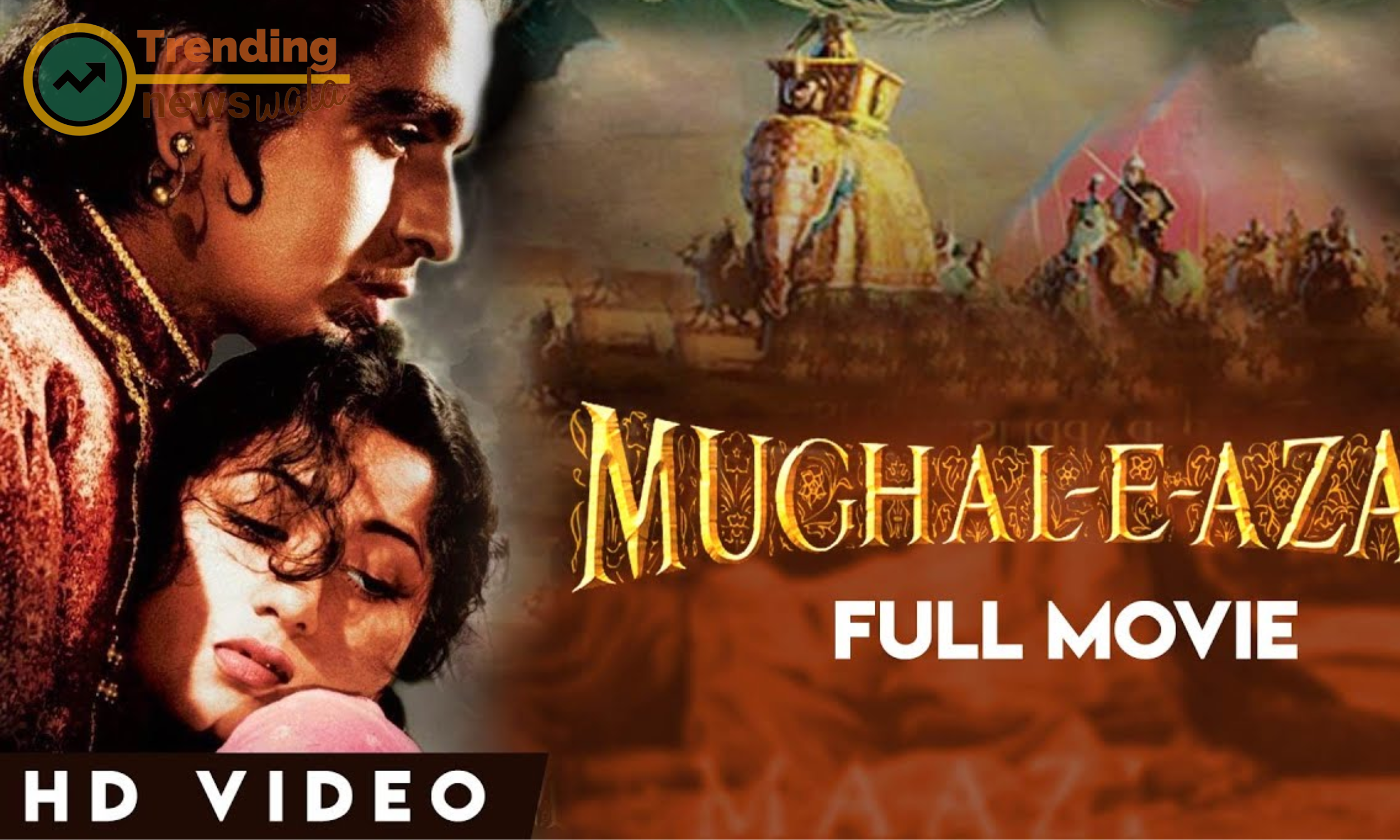
Mughal-E-Azam" is a classic Bollywood film directed by K. Asif, released in 1960. It is widely regarded as one of the greatest Indian films ever made, known for its grandeur, opulence, and timeless love story. The film features an ensemble cast, including Prithviraj Kapoor, Dilip Kumar, and Madhubala, and is celebrated for its epic narrative, memorable dialogues, and lavish production design.
Plot: "Mughal-E-Azam" is a historical drama set during the reign of the Mughal Emperor Akbar. The story revolves around the legendary love affair between Prince Salim (played by Dilip Kumar), the heir to the throne, and Anarkali (played by Madhubala), a court dancer. The central conflict arises from Salim's forbidden love for Anarkali, which goes against the wishes of his father, Emperor Akbar (played by Prithviraj Kapoor).
The film explores the themes of love, sacrifice, and the clash between personal desires and the obligations of royalty. Anarkali's defiance of societal norms and Salim's rebellion against his father form the core of the narrative.
Key Themes:
Forbidden Love: The central theme of "Mughal-E-Azam" is the forbidden love between Salim and Anarkali, which challenges the rigid social hierarchy and traditions of the Mughal court.
Conflict of Duty and Emotion: The film delves into the conflict between duty and emotion faced by the characters, particularly Prince Salim torn between his love for Anarkali and his responsibilities as the heir to the Mughal throne.
Memorable Elements:
Production Design and Cinematography: "Mughal-E-Azam" is known for its grandiose sets, intricate costumes, and opulent production design. The use of color, especially in the famous "Pyar Kiya To Darna Kya" sequence, is iconic and visually striking.
Music: The soundtrack of "Mughal-E-Azam," composed by Naushad, is considered one of the greatest in Indian cinema. Songs like "Pyar Kiya To Darna Kya" and "Teri Mehfil Mein Qismat Azma Kar" have become timeless classics.
Dialogues: The film is renowned for its powerful and poetic dialogues, written by Kamal Amrohi. Lines such as "Anarkali, Salim ki mohabbat tumhe marne nahin degi, aur hum tumhe jeene nahin denge" have become etched in cinematic history.
Impact and Recognition:
Cultural Phenomenon: "Mughal-E-Azam" became a cultural phenomenon and is considered a milestone in Indian cinema. Its impact is evident in the enduring popularity of its songs, dialogues, and characters.
Box Office Success: The film was a massive box office success and held the record for the highest-grossing Indian film for over a decade.
Awards: "Mughal-E-Azam" received several awards, including the National Film Award for Best Feature Film.
Legacy:
Restorations and Re-releases: Over the years, efforts have been made to restore and preserve the film, and it has been re-released in color. The restored version has allowed new generations to experience the grandeur of "Mughal-E-Azam."
Influence on Filmmaking: The film's influence is evident in subsequent historical dramas and epic films in Indian cinema. Filmmakers continue to draw inspiration from its visual spectacle and storytelling.
In conclusion, "Mughal-E-Azam" is a cinematic masterpiece that transcends time and remains a testament to the grandeur and craftsmanship of Indian cinema's golden era. Its impact on the industry, cultural significance, and enduring popularity have solidified its place as a classic in the annals of Bollywood history.
The epic movie “Mughal-E-Azam”, a 1960 release, is undoubtedly the greatest film of Bollywood, besides being the most expensive one of its time. It was directed by K Asif and had Dilip Kumar and Madhubala in the lead roles of Salim and Anarkali, while legendary actor Prithviraj Kapoor portrayed Emperor Akbar to perfection.
14. Dangal
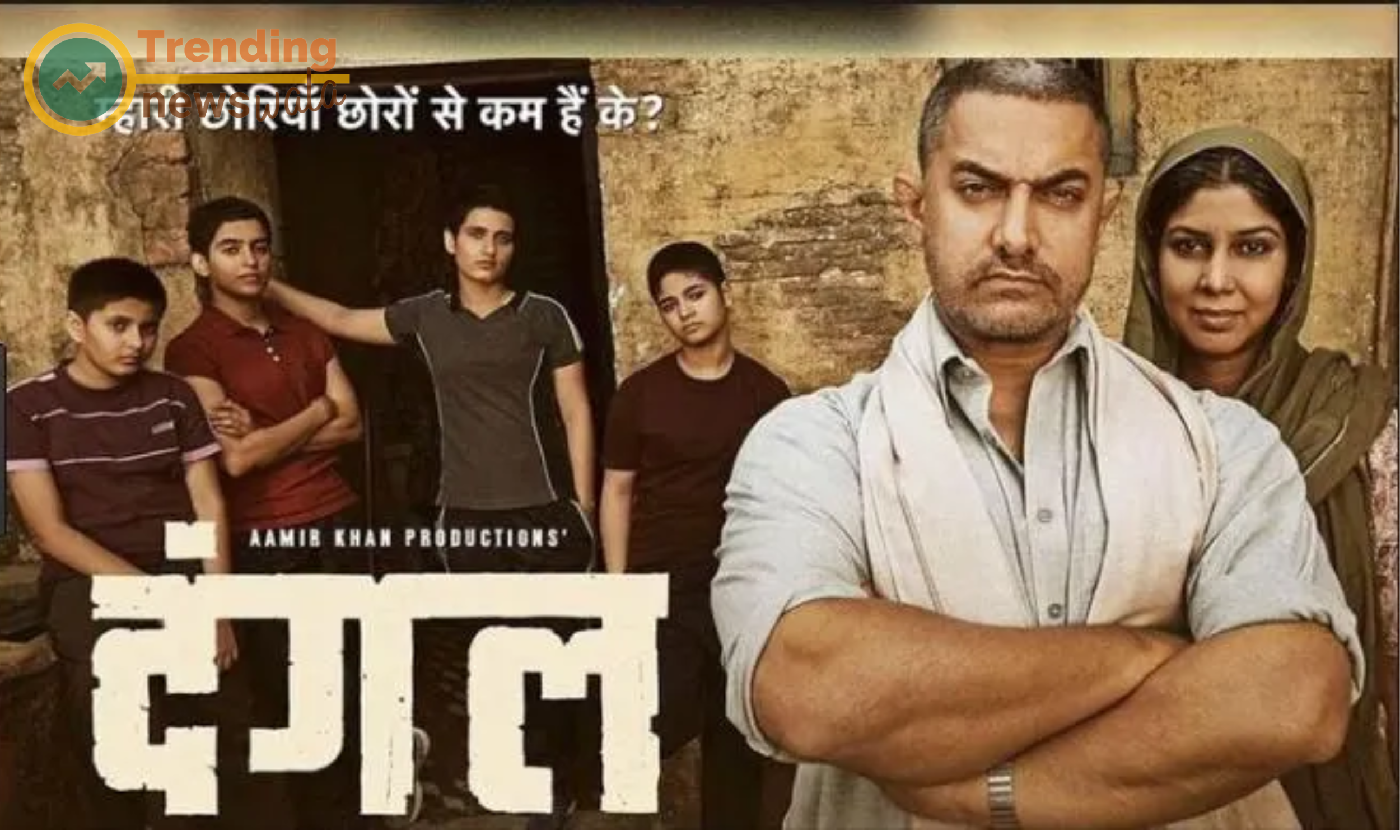
Dangal" is a critically acclaimed Bollywood sports drama film directed by Nitesh Tiwari, released in 2016. The film is based on the true story of Indian wrestler Mahavir Singh Phogat and his daughters, Geeta Phogat and Babita Kumari, who achieved success in the field of wrestling. Starring Aamir Khan as Mahavir Singh Phogat, the film explores themes of gender equality, determination, and the pursuit of excellence.
Plot: The story revolves around Mahavir Singh Phogat, a former amateur wrestler who is determined to fulfill his dream of winning a gold medal for India in wrestling. Disappointed that he couldn't achieve this himself, he decides to train his future sons. However, fate has other plans, as he ends up having four daughters instead. Undeterred, Mahavir decides to train his daughters in wrestling, believing they can achieve the success he always dreamt of.
The film primarily focuses on the journey of Geeta Phogat, Mahavir's eldest daughter, as she rises through the ranks of Indian wrestling, eventually becoming the first Indian woman to win a gold medal in wrestling at the Commonwealth Games.
Key Themes:
Gender Equality: "Dangal" addresses the prevailing societal norms and challenges associated with gender bias. Mahavir defies traditional expectations by training his daughters in a sport predominantly associated with male athletes.
Determination and Hard Work: The film emphasizes the values of determination, hard work, and resilience in achieving one's goals. Both Mahavir and his daughters exhibit unwavering dedication to their craft.
Memorable Elements:
Aamir Khan's Performance: Aamir Khan underwent a remarkable physical transformation for his role as Mahavir Singh Phogat, showcasing his commitment to his craft. His performance was widely praised for its authenticity and emotional depth.
Sports Choreography: The wrestling sequences in the film were meticulously choreographed to capture the intensity and authenticity of the sport. The actors underwent rigorous training to convincingly portray wrestlers.
Realism: "Dangal" is known for its realistic portrayal of the Phogat family and the challenges they faced. The film doesn't shy away from depicting the physical and emotional struggles of the characters.
Impact and Recognition:
Critical Acclaim: "Dangal" received widespread critical acclaim for its storytelling, performances, and social relevance. It was lauded for breaking stereotypes and inspiring a positive change in societal attitudes towards women in sports.
Box Office Success: The film was a massive box office success, becoming one of the highest-grossing Indian films of all time. Its universal appeal contributed to its success both domestically and internationally.
Awards: "Dangal" received numerous awards, including National Film Awards, Filmfare Awards, and AACTA Awards. Aamir Khan's performance and the film's direction were particularly acknowledged.
Legacy:
Inspiration for Women in Sports: "Dangal" had a significant impact on promoting women's participation in sports in India. The success of the Phogat sisters, as depicted in the film, inspired many young girls to pursue wrestling and other sports.
Cultural Impact: The film became a cultural phenomenon, with dialogues like "Mahari chhoriyan chhoron se kam hai ke?" becoming popular catchphrases. The song "Dhaakad" also became an anthem for empowerment.
International Recognition: "Dangal" received international acclaim and was widely appreciated for its universal themes. It was screened at various international film festivals, contributing to the globalization of Indian cinema.
In conclusion, "Dangal" is not just a sports drama but a socially relevant and inspiring film that celebrates the triumph of human spirit and challenges gender stereotypes. Its success at the box office, critical acclaim, and lasting impact on society make it a significant contribution to Indian cinema.
The Nitesh Tiwari directed Dangal movie went on to become the highest grossing movies of all time in 2016. The real adaptation story of the Phogat Sisters from Haryana, gripped the nation. Aamir Khan, Fatima Sana Sheikh, Zaira Wasim gave scintillating performances. The movie is considered as one of the best Bollywood has ever made.
15. PK

PK" is a satirical science fiction comedy-drama film directed by Rajkumar Hirani, released in 2014. The film stars Aamir Khan in the lead role, along with Anushka Sharma, Sushant Singh Rajput, Sanjay Dutt, and Boman Irani in pivotal roles. "PK" explores a wide range of social issues through the lens of an extraterrestrial being who questions human beliefs and practices.
Plot : The story revolves around PK (played by Aamir Khan), an alien who arrives on Earth and, due to a mishap, loses the device that allows him to communicate with his spaceship. Stranded and unfamiliar with human customs, PK embarks on a journey to retrieve his device. In the process, he encounters various aspects of human society, religion, and culture.
PK's innocent and curious nature leads him to question established norms and practices, particularly those related to religion and spirituality. His interactions with different people, including a journalist named Jaggu (Anushka Sharma), form the crux of the narrative.
Key Themes:
Religious Tolerance: "PK" addresses the theme of religious tolerance and critiques the divisive nature of religious practices. PK's innocent questions about different religions and their rituals highlight the universal aspects of faith and the unnecessary conflicts that arise.
Cultural Differences: The film explores the cultural differences between an alien's perspective and human society. PK's observations and misunderstandings lead to humorous and thought-provoking moments, shedding light on societal norms.
Memorable Elements:
Aamir Khan's Performance: Aamir Khan's portrayal of PK is notable for its innocence and childlike curiosity. His performance garnered praise for effectively conveying the emotional journey of an extraterrestrial being trying to understand human behavior.
Social Commentary: "PK" is celebrated for its sharp social commentary and satirical take on various aspects of society, including blind faith, superstitions, and religious dogmas.
Humor: The film balances its serious themes with humor, using PK's interactions with humans to provide comic relief. The humor is often derived from the alien's naivety and his attempts to make sense of human behavior.
Impact and Recognition:
Box Office Success: "PK" was a massive box office success, becoming one of the highest-grossing Indian films at the time of its release. Its success was not only limited to India but also extended to international markets.
Critical Acclaim: The film received positive reviews from critics for its thought-provoking content, performances, and effective storytelling. Aamir Khan's performance, in particular, was widely appreciated.
Awards: "PK" won several awards, including Filmfare Awards for Best Director (Rajkumar Hirani), Best Actor (Aamir Khan), and Best Dialogue.
Legacy:
Impact on Discussions: "PK" sparked discussions and debates on various social issues, particularly religious tolerance and the role of organized religion in society. It encouraged conversations about questioning blind beliefs.
International Recognition: The film's success internationally contributed to the global recognition of Indian cinema, breaking barriers and expanding the audience base for Bollywood films.
Continued Influence: "PK" continued to be referenced in discussions about socially relevant cinema and satirical storytelling. Its impact on the genre of social satire in Bollywood is enduring.
In conclusion, "PK" stands out as a socially relevant and entertaining film that uses humor to deliver powerful messages about religious tolerance and cultural differences. Its success at the box office, critical acclaim, and the conversations it sparked contribute to its lasting impact on Indian cinema.
Aamir Khan did it yet again with his 2014 release called “PK”, in which he played an alien searching for answers related to questions of religion and faith on Planet Earth. The movie starred Anushka Sharma as the female lead.
16. Lagaan

Lagaan : Once Upon a Time in India" is a critically acclaimed Bollywood epic sports drama film directed by Ashutosh Gowariker, released in 2001. The film is known for its unique storyline, compelling performances, and its representation of the underdog's triumph against all odds. Starring Aamir Khan in the lead role, "Lagaan" became an international success and earned widespread acclaim for its cinematic excellence.
Plot: Set during the British colonial era in India in the late 19th century, the story revolves around the fictional village of Champaner, which is facing an oppressive tax (lagaan) imposed by the British authorities. Bhuvan (played by Aamir Khan), a young and charismatic farmer, decides to challenge the British officers led by Captain Russell (played by Paul Blackthorne) to a cricket match. If the villagers win, they will be exempted from paying taxes for three years; if they lose, they will have to pay triple the usual tax.
Bhuvan, along with a diverse group of villagers, forms a cricket team and trains rigorously for the match, facing not only the challenges of the game but also societal prejudices and British hostility. The film captures the journey of the villagers as they come together to defy the odds and fight for their freedom.
Key Themes:
Colonial Oppression: "Lagaan" addresses the theme of colonial oppression and the exploitation of Indian villagers by the British. The cricket match serves as a metaphor for the larger struggle against imperial rule.
Unity in Diversity: The film celebrates the diversity of India by bringing together people from different castes, religions, and backgrounds to unite against a common enemy. It emphasizes the power of unity and collaboration.
Memorable Elements:
Aamir Khan's Performance: Aamir Khan's portrayal of Bhuvan received widespread acclaim for its emotional depth and authenticity. His commitment to the role and the physical training he underwent for the cricket sequences were notable.
Music: The soundtrack of "Lagaan," composed by A.R. Rahman with lyrics by Javed Akhtar, became immensely popular. Songs like "Mitwa," "Chale Chalo," and the Oscar-nominated "Lagaan... Once Upon a Time in India" contributed to the film's success.
Cricket Sequences: The cricket sequences were choreographed with precision, capturing the excitement and tension of the game. The climactic match is particularly memorable for its cinematic and emotional impact.
Impact and Recognition:
International Acclaim: "Lagaan" received international acclaim and was nominated for the Academy Award for Best Foreign Language Film. It marked a turning point for Indian cinema in terms of global recognition.
Box Office Success: The film was a significant box office success, becoming one of the highest-grossing Indian films at the time of its release. Its success was not only limited to India but also extended to international markets.
Awards: "Lagaan" won several awards, including National Film Awards and Filmfare Awards. A.R. Rahman's musical score and Ashutosh Gowariker's direction were particularly acknowledged.
Legacy:
Cinematic Milestone: "Lagaan" is often regarded as a cinematic milestone for its scale, ambition, and successful execution. It paved the way for Indian films to explore diverse genres and themes on an international stage.
Inspiration for Sports Films: The success of "Lagaan" inspired the creation of more sports-based films in Bollywood. It demonstrated that sports could be used as a powerful narrative tool in Indian cinema.
Cultural Impact: The film's impact on Indian popular culture is enduring. Dialogues, characters, and scenes from "Lagaan" continue to be celebrated and referenced in various forms of media.
In conclusion, "Lagaan" remains a timeless classic that transcends the sports genre, telling a story of resilience, unity, and triumph against injustice. Its success at the global stage, coupled with its cultural impact and critical acclaim, solidifies its place as one of the most iconic films in the history of Indian cinema.
One of the greatest movies in the history of Bollywood is the 2001 release called “Lagaan”. A story set in a village oppressed by the British Rule, the Aamir Khan starrer film was able to reach the Oscars, creating history for the country.
17. 3 Idiots
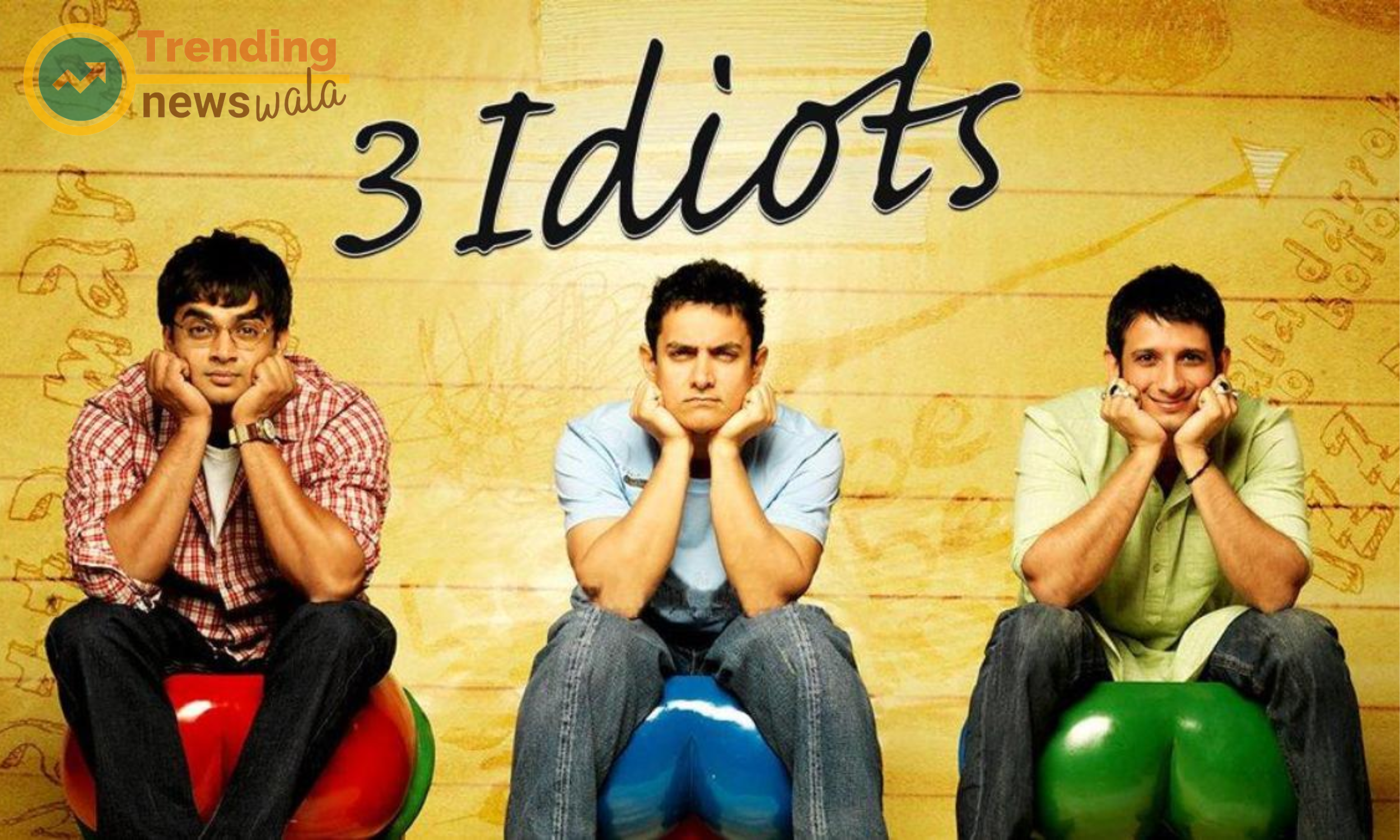
3 Idiots" is a highly successful Bollywood coming-of-age comedy-drama film directed by Rajkumar Hirani, released in 2009. Starring Aamir Khan, R. Madhavan, and Sharman Joshi in the lead roles, the film explores the pressures and expectations associated with the Indian education system. Loosely based on Chetan Bhagat's novel "Five Point Someone," the film is known for its humor, social commentary, and the celebration of the pursuit of passion over conformity.
Plot: The story revolves around three engineering students - Farhan Qureshi (R. Madhavan), Raju Rastogi (Sharman Joshi), and Rancho (Aamir Khan) - who become close friends at the Imperial College of Engineering. Rancho, a free-spirited and unconventional student, challenges the traditional and stressful approach to education. He encourages his friends to follow their passions and question the rigid expectations imposed by the educational system.
The narrative unfolds as Farhan and Raju embark on a journey to find their missing friend Rancho years after their graduation. Along the way, they reminisce about their college days and the impact Rancho had on their lives.
Key Themes:
Education System: "3 Idiots" critiques the flaws and pressures of the Indian education system. It explores how societal expectations and a focus on rote learning can stifle creativity and discourage students from pursuing their true interests.
Passion and Purpose: The film emphasizes the importance of following one's passion and finding a sense of purpose in life. It challenges the notion that success is solely determined by academic achievements.
Memorable Elements:
Aamir Khan's Performance: Aamir Khan's portrayal of Rancho is lauded for its charm, humor, and emotional depth. His performance contributes significantly to the film's impact.
Humor and Satire: "3 Idiots" is known for its witty humor and satirical take on the education system. The film uses humor to deliver its social commentary effectively.
Motivational Dialogues: The film features several memorable and motivational dialogues that resonate with audiences. Phrases like "All is well" and "Chase excellence, success will follow" became popular catchphrases.
Impact and Recognition:
Box Office Success: "3 Idiots" was a massive box office success, becoming one of the highest-grossing Indian films at the time of its release. Its success was not only limited to India but also extended to international markets.
Critical Acclaim: The film received positive reviews from critics for its humor, performances, and social message. Aamir Khan's performance and Rajkumar Hirani's direction were particularly praised.
Awards: "3 Idiots" won several awards, including Filmfare Awards for Best Film, Best Director, and Best Actor (Aamir Khan). The film's music and screenplay were also recognized.
Legacy:
Cultural Impact: "3 Idiots" had a significant impact on Indian culture, inspiring discussions about the education system and the pursuit of passion. It remains relevant in conversations about academic stress and societal expectations.
Influence on Education Discourse: The film contributed to a broader conversation about educational reform in India. It prompted discussions about the need for a more holistic and student-centric approach to learning.
Continued Popularity: "3 Idiots" continues to enjoy popularity and has a dedicated fan base. It is often referenced in discussions about Bollywood films that blend entertainment with social commentary.
In conclusion, "3 Idiots" stands out as a socially relevant and entertaining film that resonated with audiences for its humor, performances, and insightful critique of the education system. Its success at the box office, critical acclaim, and lasting impact on cultural discourse make it a landmark film in Indian cinema.
Raj Kumar Hirani brought a comic gem called “3 Idiots” in 2009. Starring Aamir Khan, R Madhavan, Sharman Joshi, Kareena Kapoor and Boman Irani in lead roles, the film turned out to be the biggest grossing movie of its time.
18. Baahubali – The Conclusion
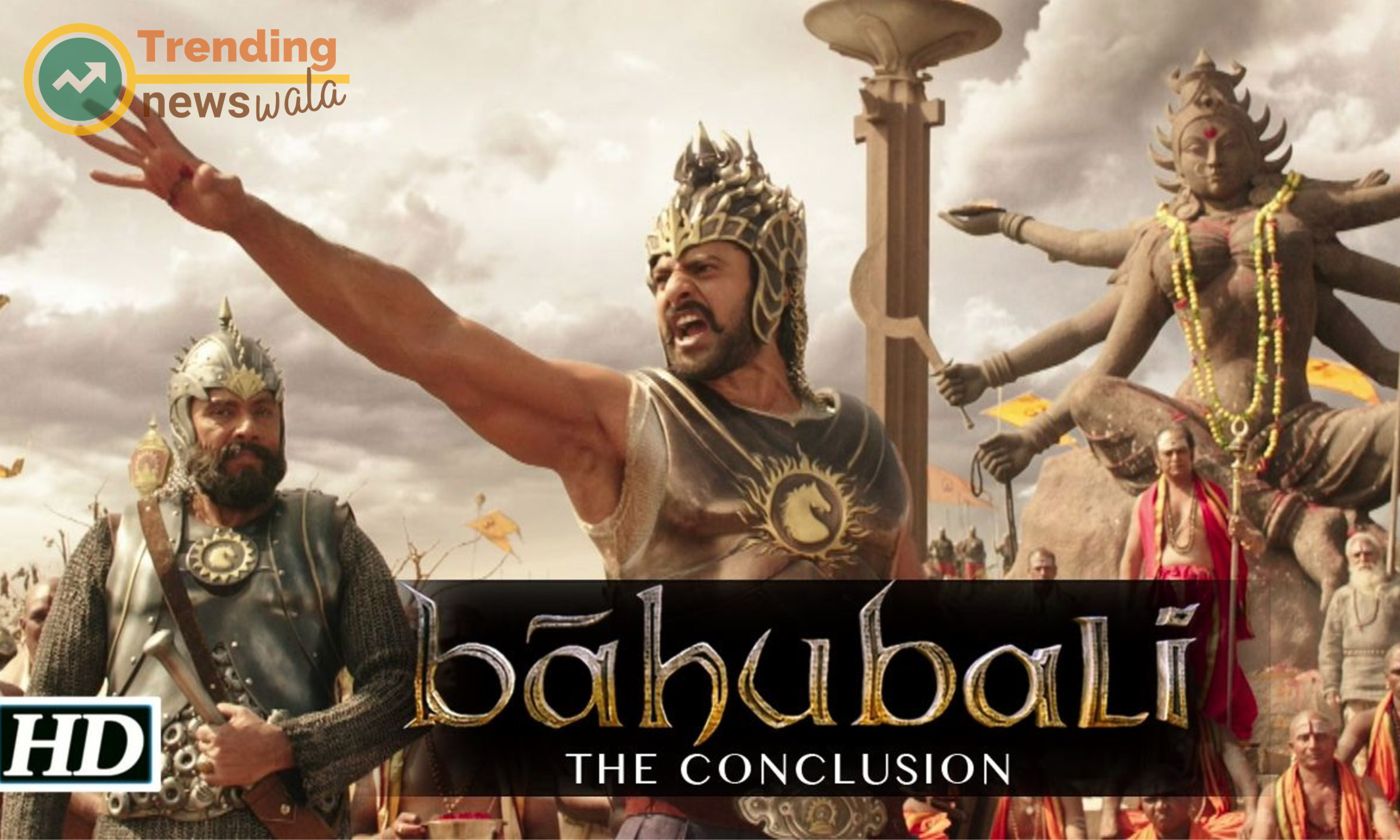
Baahubali 2: The Conclusion" is an epic Indian film directed by S. S. Rajamouli, released in 2017. It is the second part of the two-part Baahubali franchise and serves as the sequel to "Baahubali: The Beginning." The film features an ensemble cast, including Prabhas, Rana Daggubati, Anushka Shetty, Tamannaah, and Ramya Krishnan. "Baahubali 2" is known for its grand scale, visual effects, and the resolution of the epic storyline that captivated audiences in the first installment.
Plot: The film continues the narrative from where "Baahubali: The Beginning" left off. It explores the backstory of Amarendra Baahubali (played by Prabhas) and the events leading up to his tragic end. The plot also delves into the circumstances surrounding the rise of his son, Mahendra Baahubali (also played by Prabhas), who seeks to avenge his father's death and reclaim the throne of Mahishmati.
As Mahendra Baahubali unravels the secrets of his lineage and faces formidable adversaries, the film takes the audience on a journey filled with action, drama, and grandeur. The storyline includes political intrigue, familial conflicts, and epic battles.
Key Themes:
Royalty and Power Struggles: "Baahubali 2" continues to explore themes of royalty, power struggles, and the consequences of political machinations. The conflict between rightful heirs and those hungry for power remains central to the narrative.
Revenge and Justice: Mahendra Baahubali's quest for justice and revenge becomes a central theme as he seeks to avenge the injustice done to his father.
Memorable Elements:
Visual Spectacle: The film is renowned for its visual spectacle, featuring stunning cinematography, elaborate set designs, and epic battle sequences. The production values set a new benchmark for Indian cinema.
Prabhas's Dual Roles: Prabhas's performances as both Amarendra Baahubali and Mahendra Baahubali received widespread acclaim. His portrayal of the two characters with distinct personalities added depth to the narrative.
Action Sequences: "Baahubali 2" is known for its high-octane action sequences, including the climactic battle scenes. The choreography and execution of these sequences contributed to the film's appeal.
Impact and Recognition:
Global Success: "Baahubali 2" became a global phenomenon, earning immense popularity not only in India but also internationally. It broke box office records and became one of the highest-grossing Indian films of all time.
Critical Acclaim: The film received positive reviews from critics for its grand scale, storytelling, and technical achievements. The performances, especially Prabhas's, were widely appreciated.
Awards: "Baahubali 2" won several awards, including National Film Awards and Filmfare Awards. The film's technical excellence, visual effects, and musical score were acknowledged.
Legacy:
Cinematic Benchmark: "Baahubali 2" is often regarded as a benchmark for Indian cinema, showcasing the industry's potential for creating high-quality, globally appealing films.
Franchise Success: The success of the Baahubali franchise opened doors for more ambitious and large-scale Indian films. It demonstrated the audience's appetite for epic storytelling and visual extravagance.
Global Recognition: The film's success globally contributed to the recognition of Indian cinema on the international stage. It attracted attention for its storytelling, visual effects, and overall cinematic excellence.
Baahubali 2: The Conclusion" stands as a cinematic spectacle that pushed the boundaries of Indian filmmaking. Its success at the global box office, critical acclaim, and lasting impact on the industry make it a landmark film in Indian cinema history.
Baahubali – The Conclusion set Bollywood on fire in 2017. The SS Rajmouli directed movie which was originally a Telegu movie set the new standard for graphics, screenplay, and acting. Prabhas, Anushka Shetty, and Ramaya played the crucial roles in the movie. Baahubali 2 is the highest grosser overall and as a Hindi movie, it is the highest grosser as well. The popularity and the commercial success of the movie are second to none.
19. Mother India
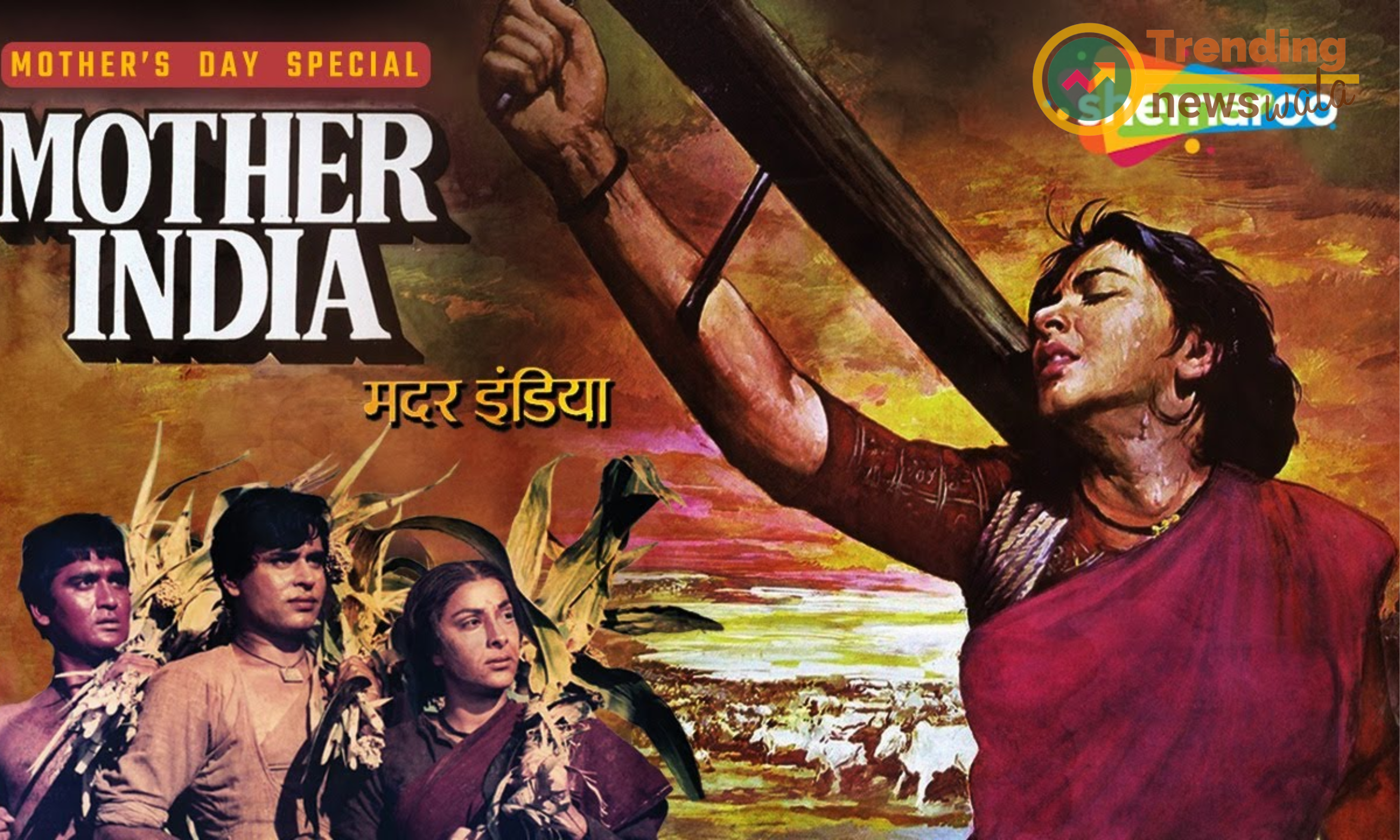
Mother India" is a classic Bollywood film directed by Mehboob Khan, released in 1957. The film is an epic drama that portrays the life of a rural Indian woman named Radha, played by Nargis, and her struggles against poverty, social injustice, and personal tragedy. "Mother India" is not only celebrated for its storytelling but also for its portrayal of the resilience and strength of Indian womanhood.
Plot: The story is set in a rural village and spans several decades, covering the life of Radha from her youth to old age. Radha, a strong and virtuous woman, faces numerous challenges, including the loss of her husband Shamu (Raaj Kumar) in a farming accident. Left to raise her two sons and a daughter on her own, Radha endures poverty, social ostracization, and the predatory advances of the moneylender Sukhilala (Kanhaiyalal).
The film explores themes of sacrifice, maternal love, and the indomitable spirit of the Indian woman as Radha makes numerous sacrifices to protect her family's honor and uphold her principles.
Key Themes:
Maternal Love and Sacrifice: The film revolves around the central theme of a mother's love and sacrifice for her children. Radha's unwavering devotion to her family becomes the driving force of the narrative.
Struggle Against Adversity: "Mother India" depicts the relentless struggle of a woman against various adversities, including poverty, societal norms, and the exploitation of the rural poor.
Memorable Elements:
Nargis's Performance: Nargis's portrayal of Radha is considered one of the finest performances in Indian cinema. Her ability to convey the character's emotional depth earned her widespread acclaim.
Iconic Moments: The film features several iconic moments, including the dramatic climax where Radha is faced with a difficult decision that encapsulates the film's exploration of morality and sacrifice.
Cultural Impact: "Mother India" had a significant impact on Indian cinema and culture. It became a cultural touchstone, reflecting the values and struggles of the Indian woman.
Impact and Recognition:
International Recognition: "Mother India" was India's official entry for the Best Foreign Language Film category at the Academy Awards in 1958. It received widespread acclaim for its portrayal of Indian rural life and values.
Awards: The film was nominated for the Academy Award for Best Foreign Language Film and received several awards in India, including the Filmfare Award for Best Film.
Critical Acclaim: "Mother India" received critical acclaim for its powerful storytelling, memorable performances, and its ability to address social issues within the context of a family drama.
Legacy:
Cinematic Legacy: "Mother India" is considered a cinematic masterpiece and a classic in Indian cinema. It set a benchmark for storytelling, performances, and the portrayal of rural life in Bollywood.
Influence on Filmmaking: The film's success and impact on Indian audiences influenced subsequent filmmakers, inspiring them to explore social issues and family dynamics in their works.
Representation of Indian Womanhood: Radha, the central character, became an enduring symbol of Indian womanhood, representing strength, sacrifice, and resilience. The film contributed to changing perceptions of women in Indian cinema.
Mother India" remains a timeless classic that continues to be celebrated for its emotional depth, powerful performances, and its portrayal of the challenges faced by rural Indian women. Its cultural impact, critical acclaim, and lasting legacy make it an integral part of Indian cinematic history.
Another unforgettable Bollywood movie is “Mother India”, which was marked by brilliant performances of Nargis, Sunil Dutt, and Raj Kumar. This spectacular piece of work was released in 1957 but its memories are etched on the hearts of movie fans till date.
Some other unforgettable Bollywood movies are “Anand”, “Maine Pyar Kiya”, “Mr. India”, “Devdas”, “Masoom”, “Dil Se”, “A Wednesday”, and the list is endless. All these movies have not only entertained millions but have also sent across great social messages.
20. Mohabbatein

Mohabbatein" is a Bollywood romantic drama film directed by Aditya Chopra, released in 2000. The film features an ensemble cast including Amitabh Bachchan, Shah Rukh Khan, Aishwarya Rai, Uday Chopra, Jugal Hansraj, Jimmy Sheirgill, and Kim Sharma. Set against the backdrop of a strict and traditional Gurukul (a traditional Indian educational institution), "Mohabbatein" explores themes of love, rebellion, and the clash between strict discipline and the freedom to follow one's heart.
Plot: The film is set in Gurukul, an all-boys institution headed by Narayan Shankar (Amitabh Bachchan), a strict and authoritarian principal. He believes in discipline and suppresses any expression of love or emotion among the students. However, the arrival of a music teacher, Raj Aryan Singh (Shah Rukh Khan), introduces a new perspective to the Gurukul.
Raj challenges the rigid rules of the institution and encourages the students to embrace love and follow their hearts. This leads to a conflict between Raj and Narayan Shankar, setting the stage for a battle of ideologies and a test of love against authority.
Key Themes:
Love and Tradition: "Mohabbatein" explores the theme of love against the backdrop of traditional values and strict discipline. The film questions whether love can coexist with tradition and authority.
Individual Freedom: The clash between individual freedom and institutional rules is a central theme. The students, led by Raj, rebel against the oppressive rules of Gurukul to express their love and pursue their own dreams.
Memorable Elements:
Amitabh Bachchan and Shah Rukh Khan's Performances: The film is notable for the powerful performances of Amitabh Bachchan as the stern principal and Shah Rukh Khan as the charismatic music teacher. Their on-screen dynamic adds depth to the narrative.
Romantic Subplots: "Mohabbatein" features multiple romantic subplots involving the students, each with its own set of challenges and obstacles. The film weaves these subplots into the larger narrative.
Musical Score: The film's music, composed by Jatin-Lalit with lyrics by Anand Bakshi, includes memorable songs like "Humko Humise Chura Lo" and "Aankhein Khuli." The music contributes to the emotional resonance of the story.
Impact and Recognition:
Box Office Success: "Mohabbatein" was a commercial success at the box office, becoming one of the highest-grossing films of the year.
Cultural Impact: The film left a cultural impact, especially with its emphasis on love and rebellion against authority. It resonated with audiences for its emotional storytelling.
Awards: "Mohabbatein" received several awards and nominations, including Filmfare Awards for Best Actor (Shah Rukh Khan) and Best Supporting Actor (Amitabh Bachchan).
Legacy:
Celebrated Romance: "Mohabbatein" is remembered as a celebrated romantic drama that brought together two iconic actors, Amitabh Bachchan and Shah Rukh Khan, in a compelling storyline.
Influence on Filmmaking: The film's success influenced subsequent filmmakers, and its themes of love and rebellion have been explored in various ways in Bollywood.
Musical Legacy: The film's music continues to be popular, with its songs being cherished by audiences. The soundtrack remains one of the film's enduring legacies.
Mohabbatein" is a significant film in Bollywood that blends romance, drama, and music. Its exploration of love against tradition, strong performances, and memorable soundtrack have contributed to its lasting impact on Indian cinema.



